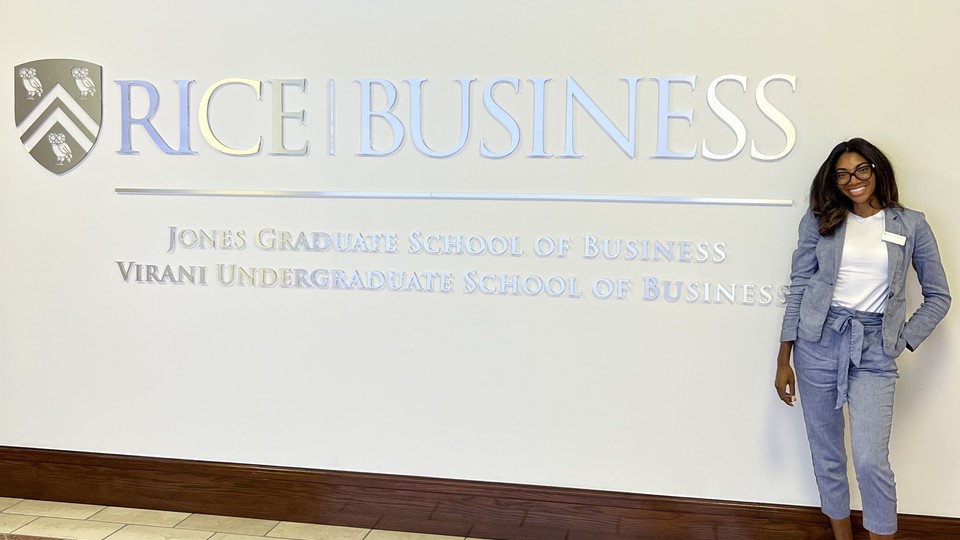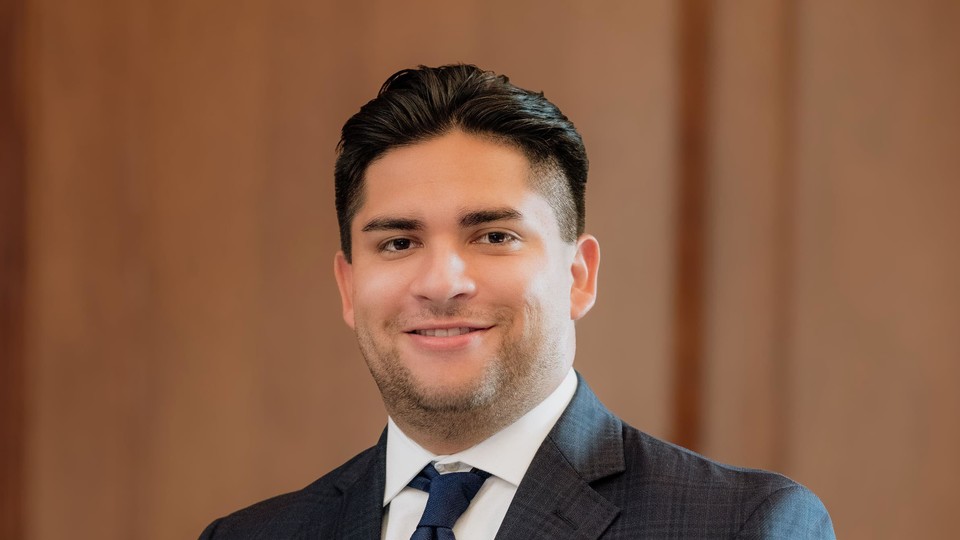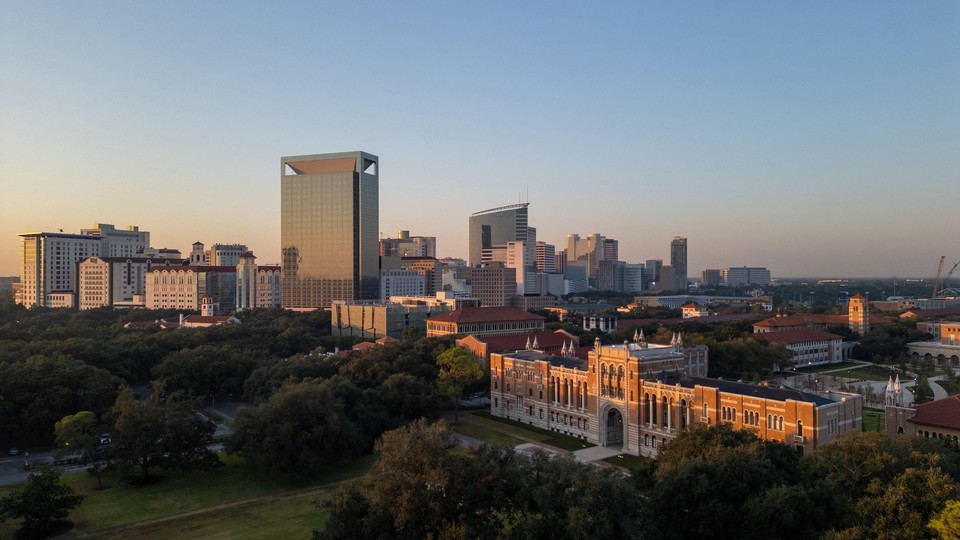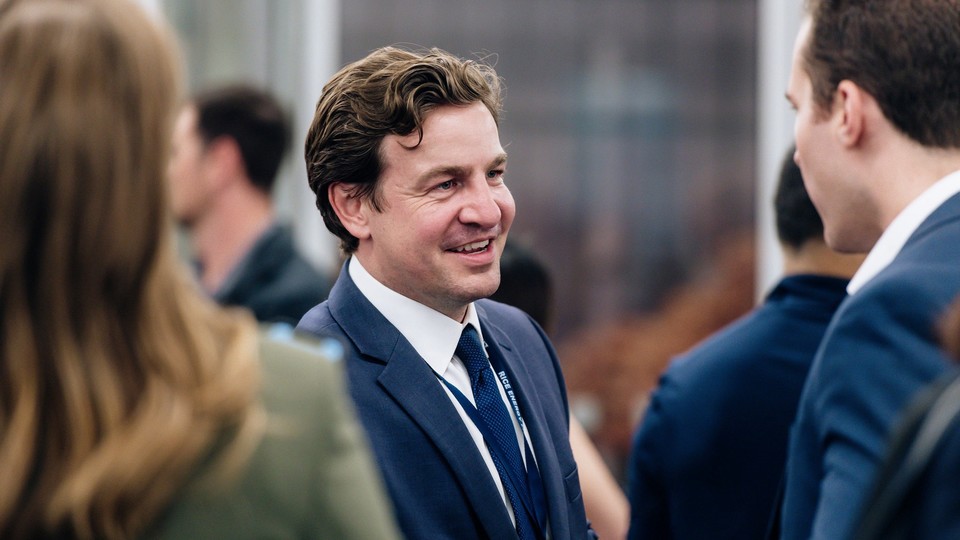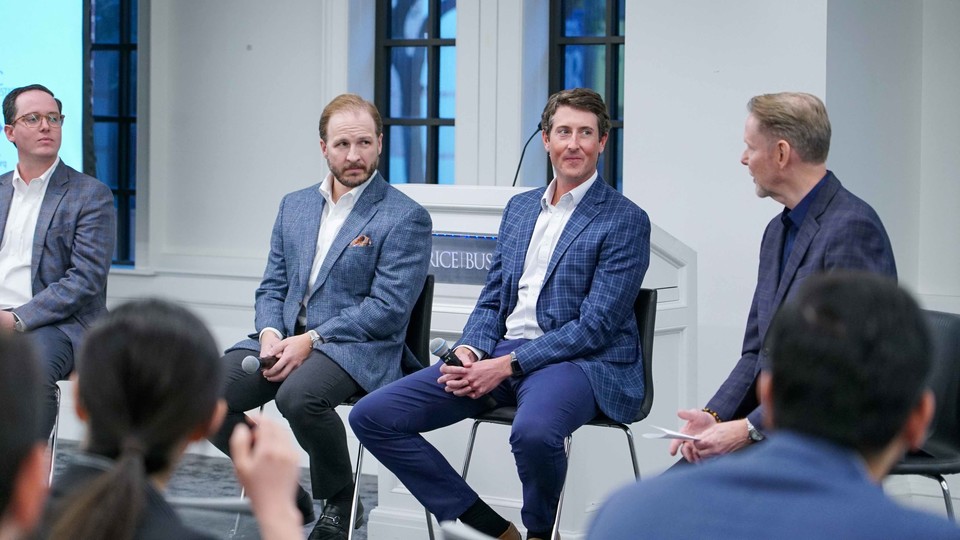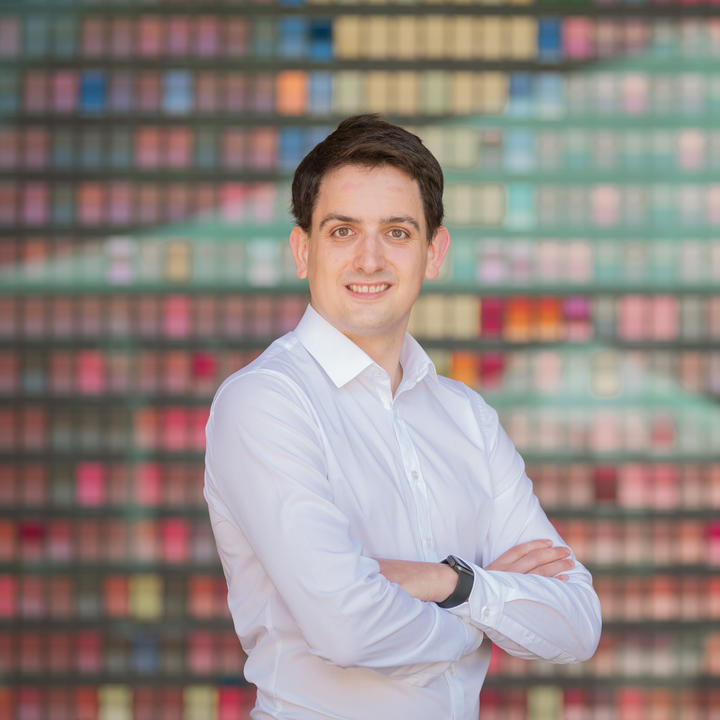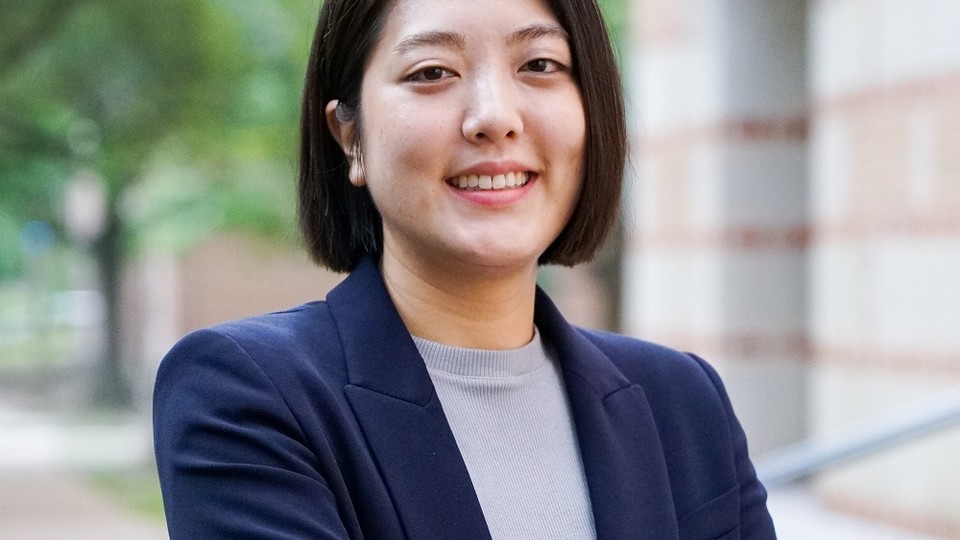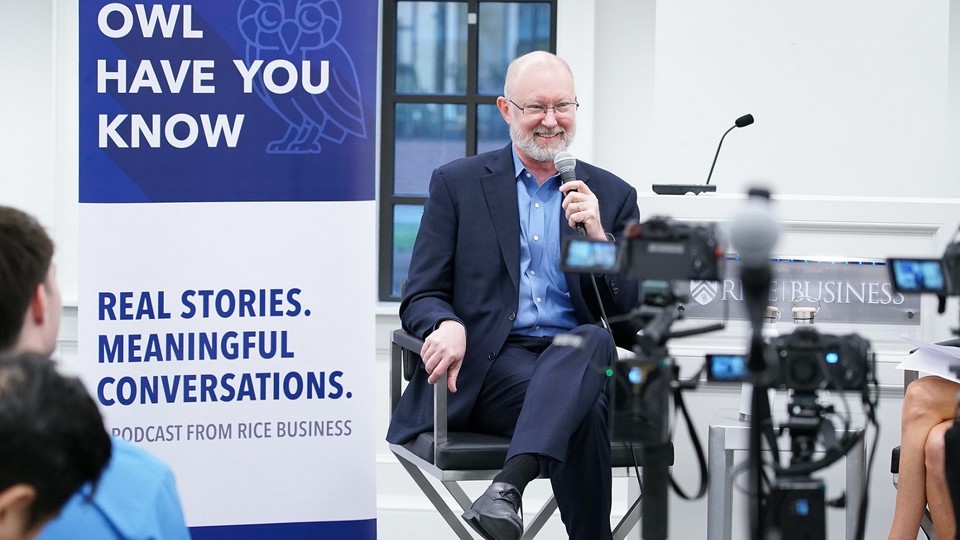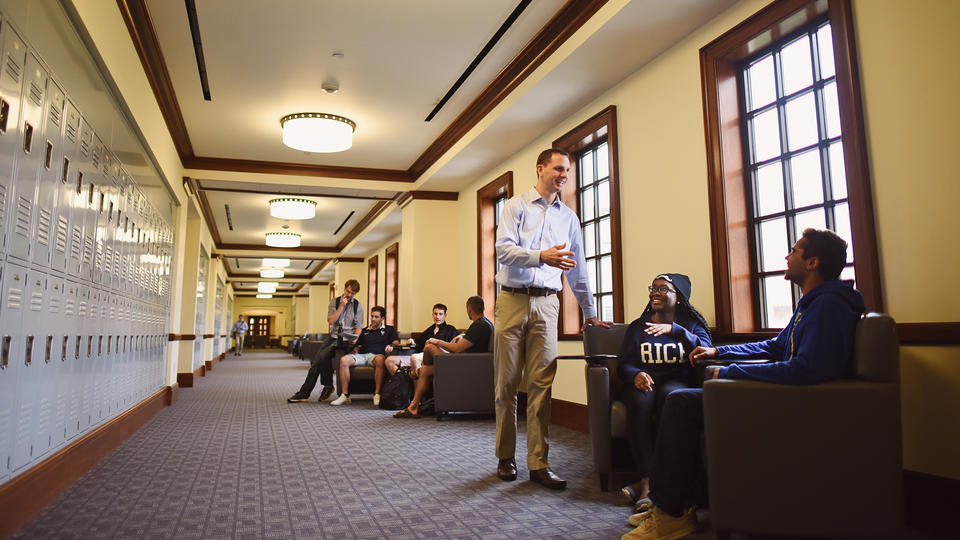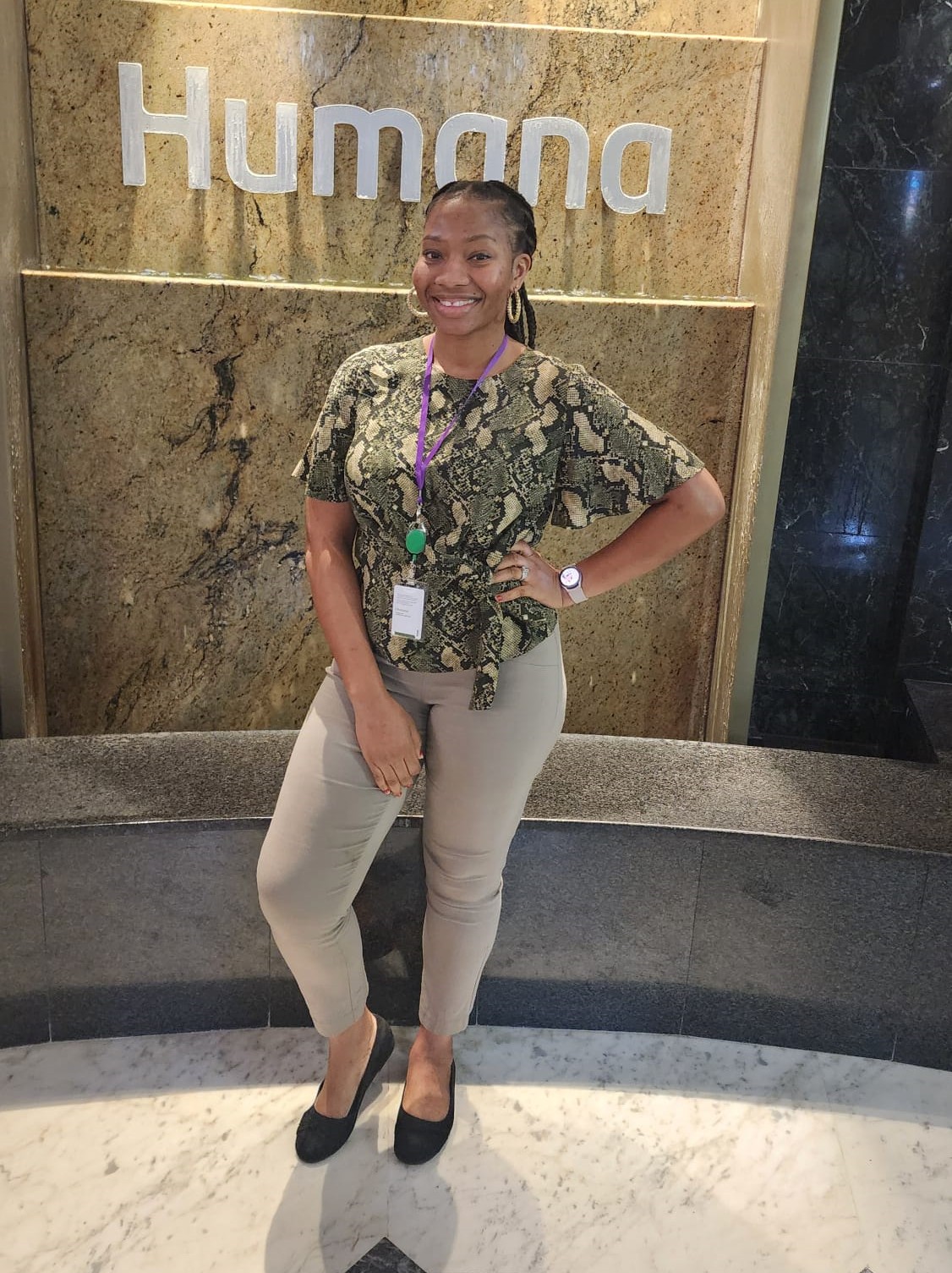
Meet Delphine Ariguzo: Full-Time MBA Student and Procurement Intern at Humana
Explore how Delphine Ariguzo pivoted from crunching numbers as an accountant to leading impactful healthcare procurement initiatives at Humana.
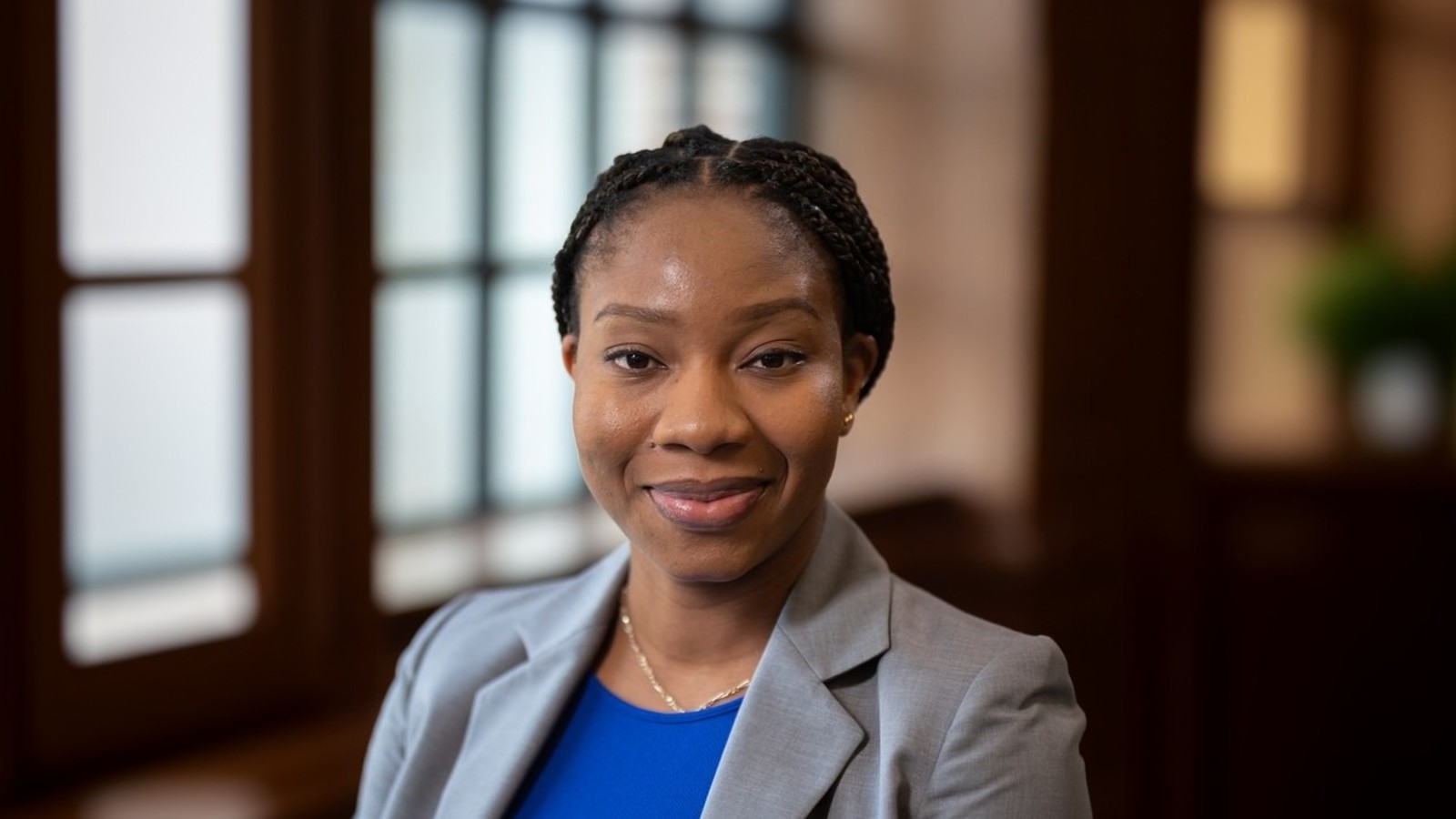
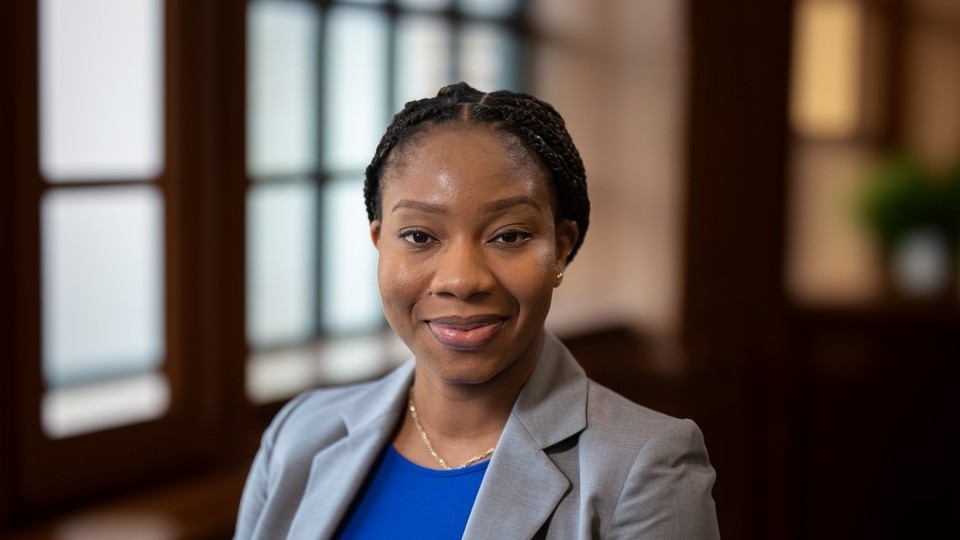
PREVIOUS CAREER AND CURRENT INTERNSHIP
Previous position before MBA:
- Title: Accountant
- Company: Milrose Consultants Inc.
- Location: New York City, NY
Summer Internship:
- Title: Procurement Intern
- Company: Humana
- Location: Remote
HOW DID YOU SECURE YOUR INTERNSHIP?
I secured my internship during the pre-MBA recruiting season at the Consortium Conference. Before attending the conference, I received an email from the Humana recruiting team inviting me to apply for several open positions. They also invited me to a private dinner at the conference. While in Louisiana for the conference, I met and networked extensively with the Humana team. I had my first interview at the conference and then two final round interviews with different departments a few weeks after returning home. I was selected by the procurement department, and that's how I ended up interning with them over the summer.
WHAT WERE YOUR RESPONSIBILITIES DURING THE INTERNSHIP?
During my internship, I held the role of a procurement intern. My responsibilities included:
- Assessed processes, developed and communicated change strategies, provided training and support, monitored progress, gathered feedback, and made adjustments to improve effectiveness.
- Documented workflows to identify inefficiencies, collaborated with teams to create detailed process maps, streamlined operations, and supported the implementation of new procedures.
- Analyzed procurement data to identify trends, cost-saving opportunities, and areas for improvement, working with large datasets and analytical tools.
- Assisted in managing supplier relationships, including negotiating contracts, evaluating vendor performance, and ensuring compliance with company policies.
- Coordinated procurement projects from planning to execution, setting timelines, assigning tasks, and ensuring milestones were met.
- Worked on initiatives to streamline processes, reduce costs, and improve efficiency, developing new procedures and recommending best practices.
- Collaborated with various departments, such as finance, operations, and legal, to ensure alignment and support for procurement initiatives.
Through these responsibilities, I gained valuable experience and contributed to the success of the procurement department.
WHAT DEPARTMENT WAS YOUR INTERNSHIP WITH?
The Procurement (Center for Enablement) department.
HOW DID YOUR MBA COURSEWORK PREPARE YOU FOR THIS INTERNSHIP?
My MBA coursework prepared me for this internship in several ways:
- Courses in finance and data analysis helped me develop strong analytical skills, which were essential for evaluating procurement strategies and making data-driven decisions.
- Classes in business strategy and operations management taught me how to think strategically about supply chain management and procurement processes, enabling me to contribute effectively to the team.
- Leadership and communication courses enhanced my ability to work collaboratively with colleagues and present ideas clearly and persuasively.
- Specialized courses related to healthcare, such as Business of Healthcare and Operations Management, provided me with an understanding of industry-specific challenges and best practices.
Overall, my MBA coursework equipped me with a comprehensive skill set that was directly applicable to my role in the procurement department.

HOW DOES THE INTERNSHIP ALIGN WITH YOUR CAREER GOALS?
The internship aligns with my career goals in several significant ways:
- Working with Humana provided me with hands-on experience in the healthcare industry, which is the sector I aim to build my career in.
- The internship allowed me to apply and further develop my skills in procurement and strategic decision-making, all of which are crucial for my future career aspirations.
- Networking with professionals and leaders at Humana helped me build valuable connections that can support my career growth and provide opportunities for future collaboration.
- The experience confirmed my interest in procurement and operations management as a long-term career path, helping me focus my future efforts and education on this area.
Overall, the internship was a perfect fit for my career goals, providing relevant experience, skill development, and professional connections that will be instrumental in my career progression.
HOW DO YOU THINK THE INTERNSHIP WILL HELP YOU WITH YOUR MBA STUDIES OR FUTURE CAREER?
The internship will help me with my MBA studies and future career in several ways:
- It allowed me to apply theoretical knowledge from my MBA coursework to real-world situations, deepening my understanding and enhancing my learning experience.
- My hands-on experience in procurement and supply chain management sharpened my analytical, strategic, and problem-solving skills, which are essential for both my studies and future career.
- Gaining insider knowledge of the healthcare industry provided me with a clearer perspective on industry trends and challenges, which will be valuable for class discussions and future career decisions.
- Building relationships with professionals at Humana has expanded my network, providing mentors and contacts who can offer guidance and support throughout my career.
- Having this internship experience on my resume makes me a more competitive candidate for future job opportunities, demonstrating my ability to succeed in a professional setting.
Overall, the internship has provided me with practical skills, industry knowledge, and professional connections that will benefit my MBA studies and significantly advance my career.
WHAT IS YOUR FAVORITE PART OF YOUR INTERNSHIP EXPERIENCE?
My favorite part of my internship experience was kickstarting a project and seeing it through to launch. Specifically, I had the opportunity to lead a procurement optimization project aimed at improving our supply chain efficiency.
The project began with identifying key areas where we could reduce costs and streamline processes. I worked closely with my team to gather data and analyze current procurement practices. I developed a comprehensive project plan, outlining the steps needed to achieve our goals. This included setting milestones, assigning tasks, and establishing a timeline.
During the execution phase, I coordinated with various departments, facilitated meetings, and ensured everyone was on track. I also monitored progress and made necessary adjustments to keep the project moving forward. Finally, we reached the launch phase, where we implemented the new procurement strategies. Seeing the positive impact of our work, such as reduced costs and improved efficiency, was incredibly rewarding.
The experience taught me valuable lessons in project management, teamwork, and problem-solving. It was fulfilling to see our hard work come to fruition and make a tangible difference for the company. Overall, leading a project from initiation to launch was the highlight of my internship. It provided me with practical experience and a sense of accomplishment that will stay with me throughout my career.
WHAT ADVICE DO YOU HAVE FOR PROSPECTIVE STUDENTS?
Here is my advice for prospective students:
- Building relationships with peers, professors, and industry professionals is crucial. Attend conferences, join clubs, and make the most of networking opportunities to create a strong support system and open doors for future opportunities.
- Participate in extracurricular activities and take on leadership roles. These experiences will help you develop valuable skills and make your resume stand out.
- Pursue internships and practical experiences in your field of interest. These opportunities provide hands-on learning and can significantly enhance your understanding and career prospects.
- Balancing coursework, extracurricular activities, and personal commitments can be challenging. Develop effective time management skills and stay organized to ensure you can meet all your responsibilities.
- Do not hesitate to ask for help when necessary. Whether it's academic support, career advice, or personal guidance, reaching out to mentors, professors, and peers can make a significant difference.
- Be willing to explore new areas and take on challenges outside your comfort zone. This openness can lead to discovering new passions and opportunities you may not have considered.
- Use your time in school to develop not only academically but also personally. Engage in activities that promote personal growth, such as volunteering, attending workshops, and reflecting on your goals and values.
Delphine Ariguzo is a Full-Time MBA student in the Class of 2025.
The Rice MBA
From Engineer to Innovator: Meet Cyrus Mistry, Full-Time MBA Student
Discover how Cyrus Mistry is shaping the future of automotive innovation through his internship at Toyota, where he applies his MBA insights to real-world challenges.

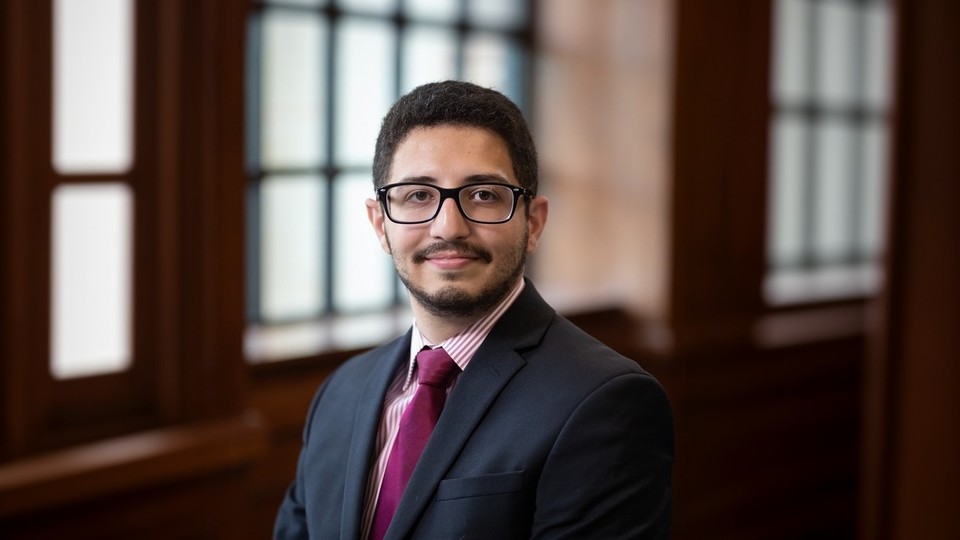
PREVIOUS CAREER AND CURRENT INTERNSHIP
Previous position before MBA:
- Title: Sr. Attribute Delivery Engineer
- Company: Rivian Automotive
- Location: Normal, Illinois
Summer Internship:
- Title: Product Planning and Strategy Intern
- Company: Toyota Motor North America
- Location: Plano, Texas
HOW DID YOU SECURE YOUR INTERNSHIP?
I had an idea from my past career that automotive product planning might be an interesting role for me, so I was on the lookout for such positions. Toyota held a virtual networking session where Rice students were invited. At that event, I learned more about the internship and met some of the department members. I knew this was a great fit and applied as soon as applications opened. From there, I had coffee chats with department members before ultimately interviewing for the role and receiving the offer.
WHAT ARE YOUR RESPONSIBILITIES DURING THE INTERNSHIP?
As a product planning and strategy intern, I handle multiple projects where I conduct competitive analysis of other vehicles, develop strategies to keep Toyota products fresh throughout their lifecycle, create customer profiles for future vehicles, and work on projects involving the future of mobility.
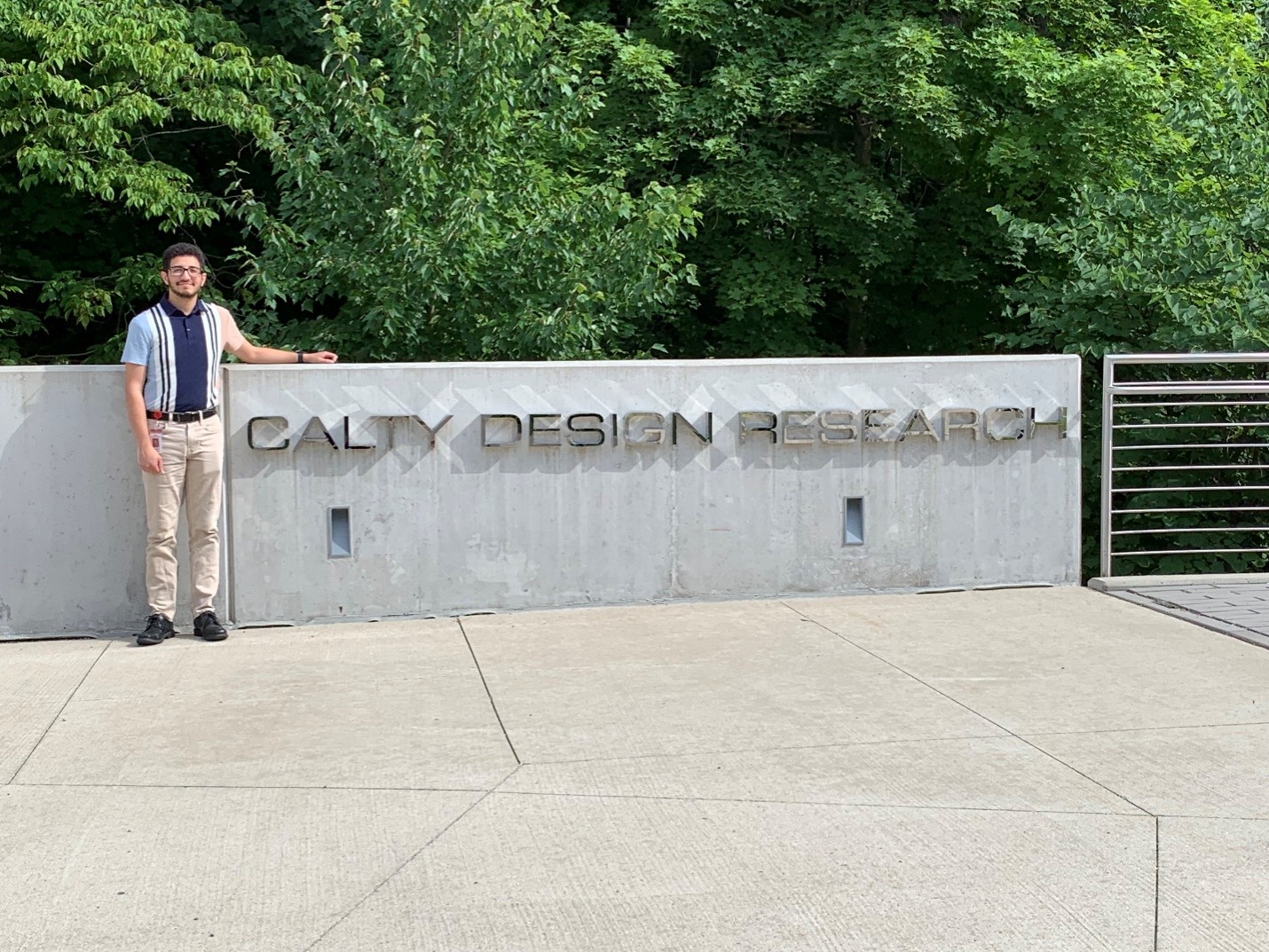
WHAT DEPARTMENT IS YOUR INTERNSHIP WITH?
I work on the Product Planning and Strategy Team for the Toyota Truck and Rugged SUV team.
HOW DID YOUR MBA COURSEWORK PREPARE YOU FOR THIS INTERNSHIP?
Core concepts from marketing and finance are used daily, as we build business cases for our products and define the customers who will purchase them. Business communications skills help with presenting in front of many people. Classes like New Product Development and Customer Experience Management have helped me form a consumer-centric mindset.
HOW DOES THE INTERNSHIP ALIGN WITH YOUR CAREER GOALS?
My lifelong passion has always been cars. I was lucky to work in automotive engineering before my MBA, but I wanted to get more involved in product concept definition. Toyota’s Product Planning and Strategy internship is a great step towards that. Our department is the “Guardian of the Customer Voice,” responsible for defining future vehicles, their target audience, and ensuring their business viability.
HOW DO YOU THINK THE INTERNSHIP WILL HELP YOU WITH YOUR MBA STUDIES OR FUTURE CAREER?
My internship has helped me directly correlate concepts I learned in class and will continue to learn in my second year. For example, building customer profiles in marketing and new product development classes. At Toyota, I applied these concepts to create customer profiles for future vehicles. This experience helps define what products should be and their target customers. I hope to continue my career in "Voice of the Customer" roles where I can impact future products.
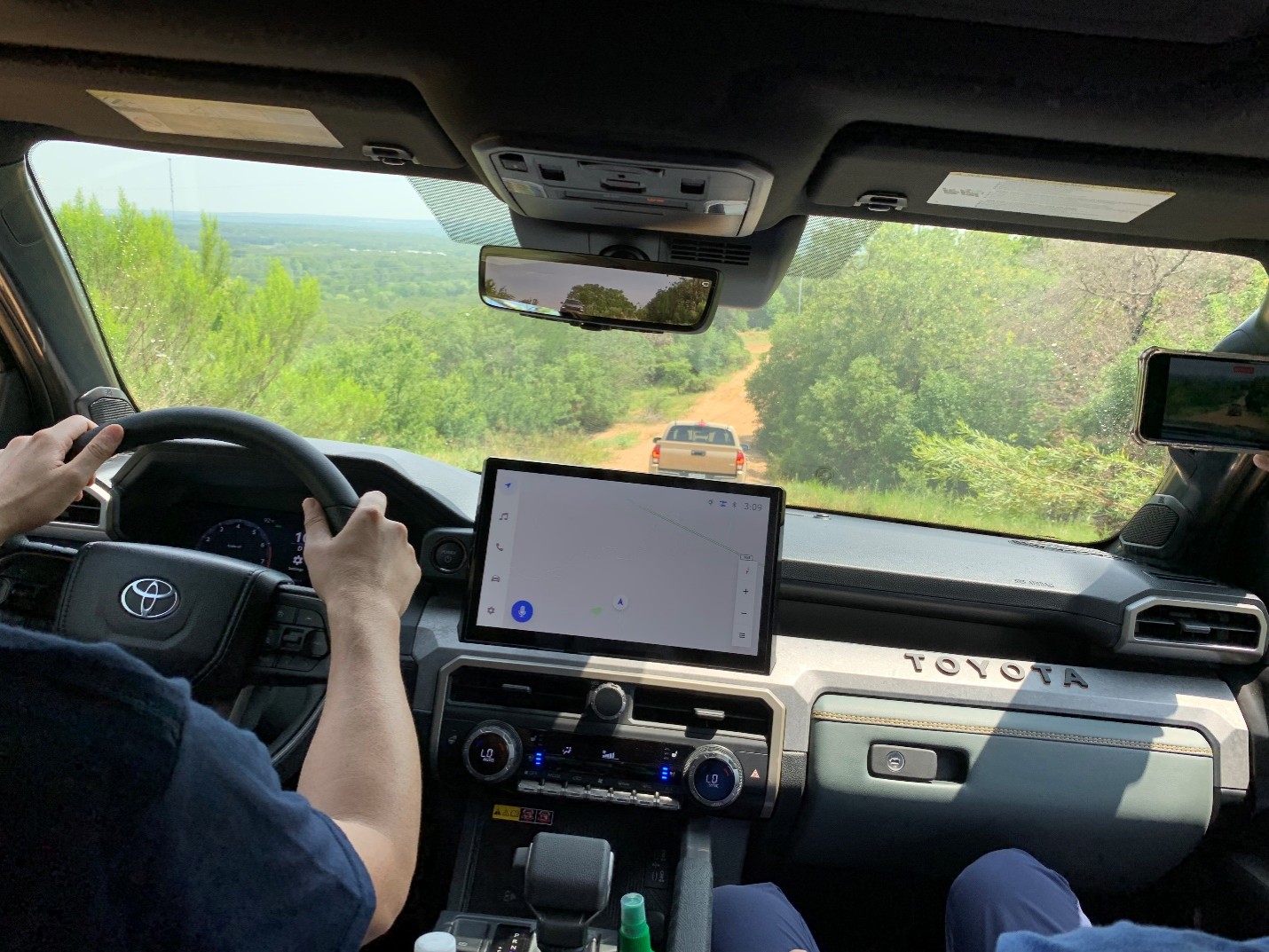
WHAT IS YOUR FAVORITE PART OF YOUR INTERNSHIP EXPERIENCE?
At Toyota, we follow the Japanese phrase “Genchi Genbutsu,” which means “go and see it.” This approach has enabled opportunities to experience off-roading in trucks and SUVs, visit RV dealerships to learn about customer needs, and see firsthand what customers demand from products. I also toured design, engineering, and manufacturing facilities. Toyota encourages networking inside and outside the department, setting up a Lunch and Learn series for interns to interact with executive leadership. The insights and knowledge gained from these sessions have been highly rewarding.
WHAT ADVICE DO YOU HAVE FOR PROSPECTIVE STUDENTS?
It is OK to have a plan but not stick to it. During the MBA program, you will explore and learn about opportunities you didn’t know existed. Keep an open mind and explore opportunities you didn’t initially think about. Balance your MBA approach by recruiting for your internship or job, doing well in classes, getting involved in activities, meeting new people, and taking care of yourself. Enjoy the journey because time passes quickly.
Cyrus Mistry is a Full-Time MBA student in the Class of 2025.
The Rice MBA
Better Salary, Better Career, Better Growth: Your MBA’s ROI
Don’t just take our word for it. Here's how to calculate your return on investment for an MBA.
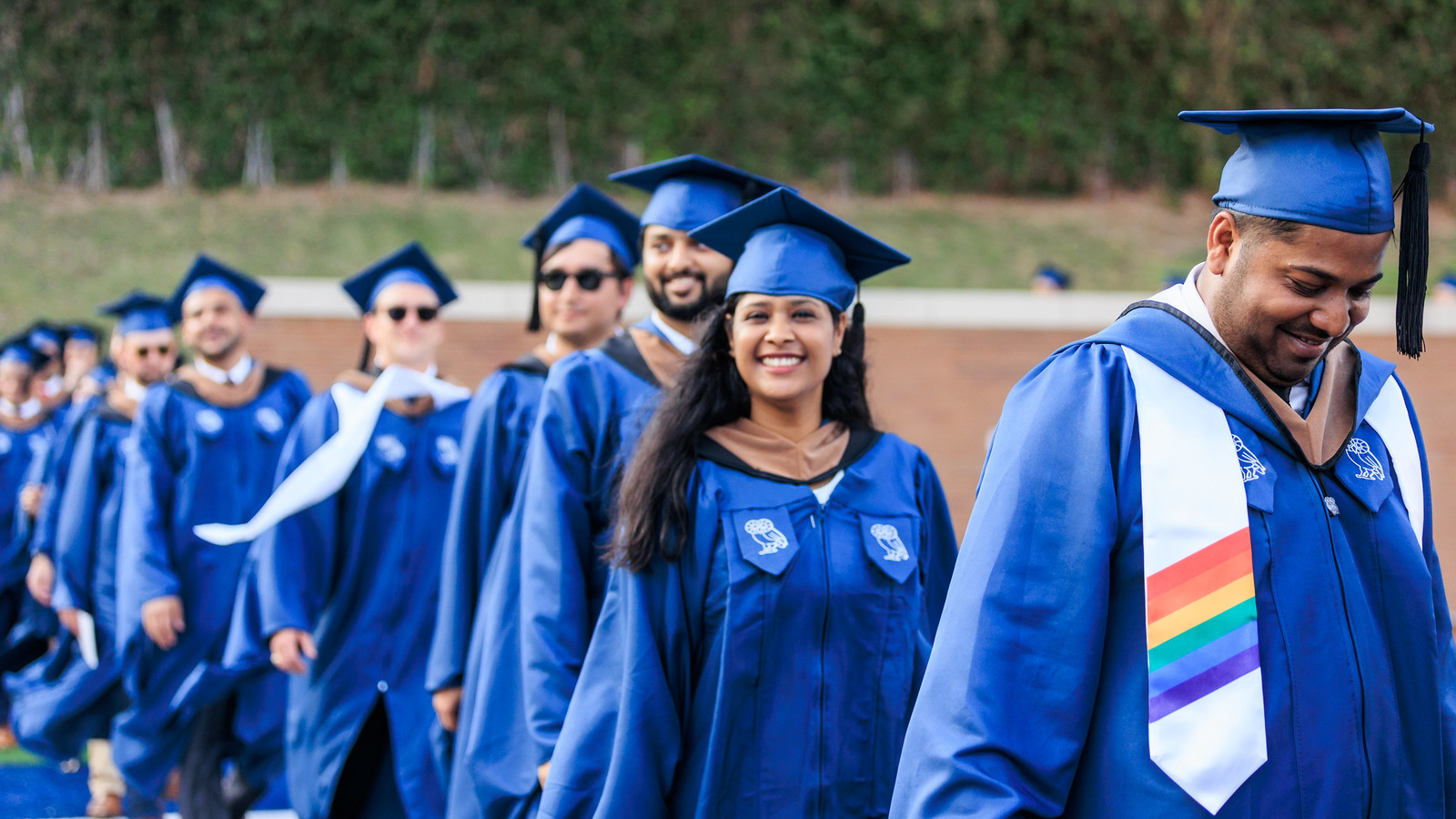
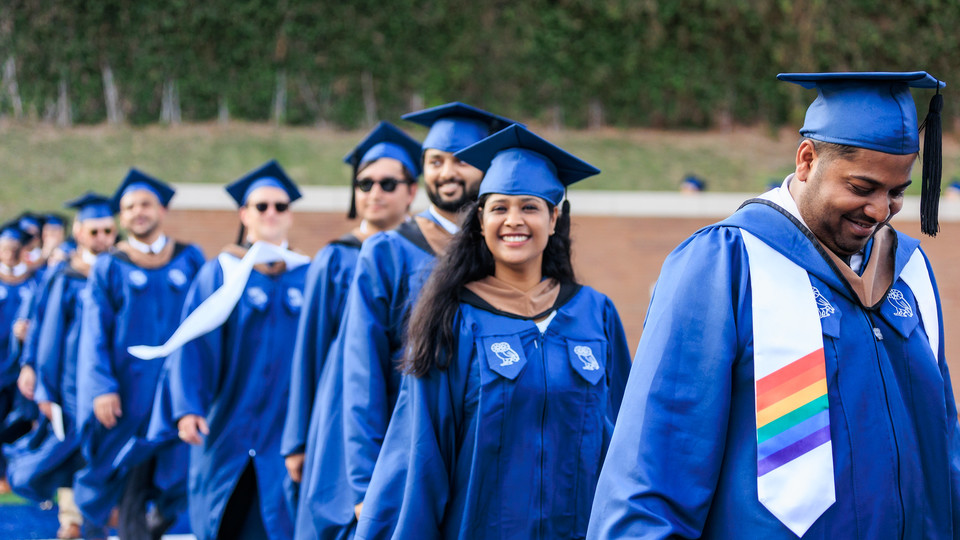
An MBA is not just a degree; it's a strategic investment you make in yourself — two years of time, money and effort for a lifetime of dividends. At Rice Business we make it easy for you to enjoy your return on investment. But don’t just take our word for it; the numbers show a high financial ROI.
Let's boil it down.
What will my MBA cost me?
- Tuition: The first and one of the biggest expenses is, of course, tuition. At Rice, the annual tuition is $73,500 for the two-year degree. This means that students will pay roughly $150,000 for their MBA.
- Opportunity cost: Another significant expense, especially for the full-time program, is opportunity cost. Prior to entering the program, our students typically have a $70,000 salary. Meaning: for the two-year degree, the opportunity cost of not having that full-time job is roughly $140,000.
These seem like daunting numbers for any prospective student. However, with every investment, there comes a payout and an MBA degree gains more than most.
What are the financial benefits of an MBA?
- Starting salary: First, upon graduation, Rice MBAs see a significant rise in their starting salaries. The median starting salary for one of our MBAs is $157,000 — representing a 124% raise from the $70,000 salary they previously had.
- Future growth: Beyond the initial salary increase, MBAs experience accelerated growth rates compared to those without. Non-MBA salaries grow at a rate of roughly 2.5%, compared to an MBA’s growth rate of 3.5%. This higher rate provides significant long-term benefits.
How will this look over the next 30 years?
Let’s consider all variables: cost, salaries, a ballpark figure of 25% income tax and, to calculate the time value of money, let’s say a 10% discount rate. Now, we have all the factors for a final investment proposal.
- Without an MBA: With a starting salary of $70,000 growing at a rate of 2.5% for 30 years, factoring in taxes and a discount rate of 10%, the present value of your future salary without an MBA would be $631,250.
- With an MBA: Starting with a salary of $157,000 growing at a rate of 3.5% for 30 years under the same tax and discount conditions would result in a present value of future salary of $1,041,491. In other words, the MBA provides a net present value of $410,241 and a final ROI of 20%.
Present any company with an investment that would generate a $410,000 return, or 20% ROI, and you’re getting promoted! This is the truth of getting an MBA. The net present value of the degree is just about the highest ROI you can find in academia. And Rice Business can help you get there.
Let’s look at the ROI for a Rice MBA, specifically.
| Costs | |
| Tuition (2 years) | $147,000 |
| Opportunity cost (2 years lost salary) | $140,000 |
| Total cost | $287,000 |
| Benefits | |
| Post-MBA starting salary (2 years) | $314,000 |
| Salary Growth Rates | |
| Non-MBA | 2.5% |
| MBA | 3.5% |
| Financial Analysis (30 Years - Rough) | |
| Tax Rate | 25% |
| Discount Rate | 10% |
| Present Value of Future Salaries | |
| Non-MBA | $631,250 |
| MBA | $1,041,491 |
| Net Present Value | |
| MBA – Non-MBA = NPV | 1,041,491 - 631,250 = NPV |
| Net Present Value | $410,241 |
| Return on Investment (ROI) | 20% |
Simpler Version
| MBA (Y/N) | Starting Salary | Growth Rate | Present Value (30 Years) | Net Present Value |
| No | $70,000 | 2.5% | $631,250 | - |
| Yes | $157,000 | 3.5% | $1,041,491 | $410,241 |
Interested in Rice Business?
Additional Considerations:
Everyone’s financial situation is unique, so this breakdown does not include loan and interest payments. (We discuss those here.)
It also does not include additional benefits like sign-on bonuses and stock options. (In 2022, the average starting bonus for a Rice MBA was $35,879.)
But even with just these numbers, it’s clear that pursuing an MBA is not only personally transformative — it also comes with considerable financial and career growth potential. We invite you to invest in your future today and join us at the Jones Graduate School of Business.
In this video, you can watch James Weston (Harmon Whittington Professor of Finance) break down the ROI of a Rice MBA:
Keep Exploring
Meet The Rice Jones MBA Class Of 2025
Meet a few students from the Rice Business MBA Class of 2025 through in-depth profiles on the extraordinary students, their stories, and their dreams.
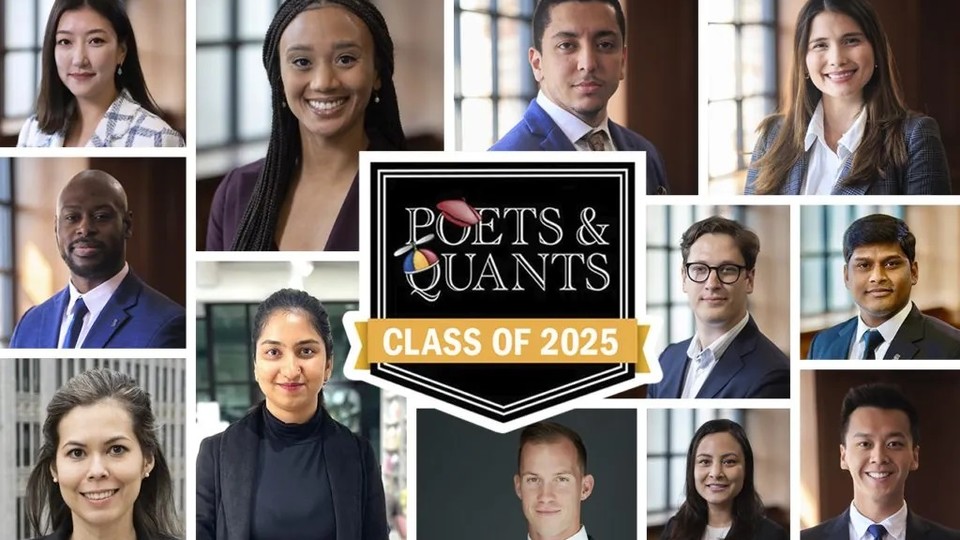
Tractor Supply may have thought it solved a big problem. Now it has a few more.
The retailer retreated from its diversity and climate goals after an “anti-woke” protest on social media — and ignited a backlash. Rice Business professor Vikas Mittal provided his expert opinion.

Stock and Bond Markets Respond Very Differently to Earnings Information
The difference is in the way trading takes place on each type of market.


Based on research by Stefan Huber (former Rice Business professor), Chongho Kim (Seoul National) and Edward M. Watts (Yale)
Key findings:
- Unlike stock markets, corporate bond markets see decreased transaction costs and improved liquidity around earnings announcements, with bid-ask spreads dropping by 6-7%.
- This difference is due to the over-the-counter nature of bond markets, where more trading activity makes it easier to find counterparties and negotiate better prices.
- The study challenges the assumption that information asymmetry always increases trading costs, highlighting the importance of considering search and bargaining frictions in OTC markets.
At the end of every quarter, publicly traded companies announce their profits and losses in an earnings report. These updates provide insight into a company’s performance and, in theory, give investors and shareholders clarity on whether to buy, sell or hold. If earnings are good, the stock price may soar. If they’re down, the price might plunge.
However, the implications for the stock price may not be immediately clear to all investors. In the face of this uncertainty, sellers will ask for high prices, and buyers will offer low ones, creating a significant “bid-ask spread.” When this happens, it becomes more costly to trade, and the stock becomes less liquid.
This is a well-documented effect on equity stock markets. However, according to research by Stefan Huber (Rice Business), Chongho Kim (Seoul National University) and Edward M. Watts (Yale SOM), the corporate bond market responds differently to earnings news. This is because bond markets differ from stock markets in a significant way.
Stocks v. Bonds: What Happens When Earnings Are Announced?
Equities are usually traded on centralized exchanges (e.g., New York Stock Exchange). The exchange automatically queues up buyers and sellers according to the quote they’ve entered. Trades are executed electronically, and the parties involved are typically anonymous. A prospective buyer might purchase Microsoft shares from someone drawing down their 401(k) — or they could be buying from Bill Gates himself.
Corporate bond markets work differently. They are “over-the-counter” (OTC) markets, meaning a buyer or seller needs to find a counterparty to trade with. This involves getting quotes from and negotiating with potential counterparties. This is an inherent friction in bond trading that results in much higher costs of trading in the form of wider bid-ask spreads.
Here’s what Huber and his colleagues learned from the research: Earnings announcements prompt many investors to trade. And on OTC markets, potential buyers and sellers become easier to find and negotiate with.
A Stronger Bargaining Position for Bonds
According to Huber, “When earnings information comes out, a lot of people want to trade. In bond markets, that makes it much easier to find someone to trade with. The more options you have to trade, the stronger your bargaining position becomes, and the lower your trading costs go.”
He compares the process to shopping in a market with a flexible approach to pricing.
“Let's say you're at a farmers market and you want to buy an apple,” Huber says. “If there is only one seller, you buy the apple from that person. They can ask for whatever price they want. But if there are multiple sellers, you can ask around, and there is potential to get a better price. The price you get depends on the number of options you have in trading partners.”
What’s at Stake?
Although bonds receive less attention than equities, the stakes are high. There is about $10 trillion in outstanding corporate debt in the U.S., and more than $34 billion in average daily trading volume.
A detailed record of bond trades is available from the Financial Industry Regulatory Authority (FINRA), which requires that trades be reported via their Trade Reporting and Compliance Engine (TRACE). The study from Huber and co-authors uses an enhanced version of TRACE to examine trades executed between 2002 and 2020. The team analyzed the thirty-day periods before and after earnings announcements to gather data about volume, bid-ask spreads and other measures of liquidity.
They find that, like on the stock market, there are more investors and broker-dealers trading bonds around earnings announcements. However, unlike on the stock market, transaction costs for bonds decrease by 6-7% in the form of bid-ask spreads.
What Sets This Research Apart?
“Taking a purely information asymmetry-based view would predict that what happens to stock liquidity would also happen to bonds,” Huber says. “A piece of information drops, and some people are better able to work with it, so others price protect, and bid-ask spreads and the cost of trading go up.”
“But if you consider the search and bargaining frictions in bond markets, you get a more nuanced picture. While information asymmetry increases, like it does on stock markets, the information prompts more investors into bond trading, which makes it easier to find counterparties and get better transaction prices. Consequently, bid-ask spreads go down. This search and bargaining friction does not really exist on equities exchanges. But we cannot ignore it in OTC markets.”
As corporate debt markets continue to grow in importance, it will become crucial for investors and regulators to understand the nuanced factors influencing their liquidity. This study provides a solid foundation for future research.
Huber, Kim, and Watts (2024). “Earnings News and Over-the-Counter Markets.” Journal of Accounting Research.
Never Miss A Story
Keep Exploring
What Practicing DEI in the Workplace Really Means feat. Professor Mikki Hebl
Season 4, Episode 19
Mikki chats about her new book, the subtleties of biases, and the importance of staying informed and aware of biases to make the world and workplaces fairer and more equitable for everyone.
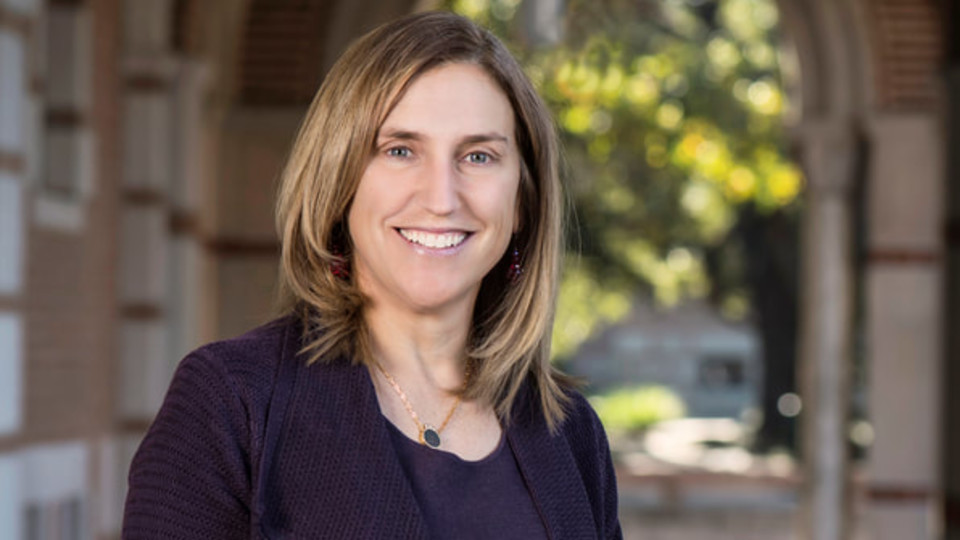
Owl Have You Know
Season 4, Episode 19
Mikki Hebl, an industrial organizational psychologist and the Martha and Henry Malcolm Lovett Chair of Psychology – Professor of Management at Rice University, has been studying workplace discrimination and diversity, equity and inclusion (DEI) for 30 years, well before DEI became the widely discussed topic it is today.
In March of this year, Mikki and Eden King, the Lynette S. Autrey Professor of Psychological Science at Rice, released a new book (Working Together: Practicing the Science of Diversity, Equity and Inclusion). In it, they outline the state-of-the-art science that makes the case for DEI and delve into effective strategies for individuals and organizations to foster more inclusive environments.
Mikki chats with host Maya Pomroy '22 about her book, the subtleties of biases, and the importance of staying informed and aware of biases to make the world and workplaces fairer and more equitable for everyone.
Subscribe to Owl Have You Know on Apple Podcasts, Spotify, Youtube or wherever you find your favorite podcasts.
Episode Transcript
-
[00:00]Maya: Welcome to Owl Have You Know, a podcast from Rice Business. This episode is part of our Up Next Series, where faculty, researchers, and alumni weigh in on the trends currently shaping the world of business.
Our guest today on Owl Have You Know is Dr. Mikki Hebl, the Martha and Henry Malcolm Lovett Chair of Psychology, professor of psychology and management, whose focus is on organizational behavior.
Welcome to Owl Have You Know, Dr. Hebl.
[00:27]Mikki: Well, thank you. Thank you for having me here, Maya.
[00:29]Maya: So, you have been at Rice for 26 years — what a phenomenal run you have had — and continue to really be the core and the fabric of what Rice University is. You're a Wisconsin girl, right? So, tell me what brought you to Houston, Texas.
[00:54]Mikki: Well, I grew up in a small town — 1,300 people. It was called Pardeeville, P-A-R-D-E-E, just so you know, okay? And very few people from Pardeeville actually go out of state to go to college, if they go to college at all. I went to a place called Smith College, which is an all-women's college in Northampton, Massachusetts. And it was there that I learned about the pioneering efforts of the women and some men who went before us to try to give us equal rights. And after four years of studying there, I really had this urge to pay it forward. So, I wanted to go to graduate school. I applied to 13 graduate schools and got rejected from all of them except for one.
[01:43]Maya: Really? Wow.
[01:45]Mikki: And the one that won was Texas A&M, which, if you know Smith, is right…
[01:54]Maya: Polar opposite.
[01:57]Mikki: Polar opposite. And I went to Texas A&M sight unseen. I had never been to Texas before. So, it was crazy. In fact, I tell a story that the first time I went down to the pub called The Chicken, I met this guy from Connecticut and I said, “Hey, let's go down to this place called The Chicken and get a burger.” I'd never been… again, the day before, I got to Texas. And I got to The Chicken and I saw all these guys playing dominoes and had cowboy hats on. And I said, “Oh, my God. This must be a themed restaurant.” And in fact, the whole town was themed.
So, anyway. So, I stood on the left, I stood on the right, I finished my degree at Dartmouth, I quickly switched from being interested in gender issues to being interested in diversity-related issues, just more generally. When I left College Station, I said, “I don't think I'm ever going to go back to Texas.” And you never say those things.
[02:58]Maya: Never say never.
[03:00]Mikki: Never say never! So, when I finished…graduated from Dartmouth, there was this job at Rice, and I thought, “Well, you know what? I'm going to apply to it.” And voila, I've been here ever since.
[03:13]Maya: And won just about every single award known to man, not just teaching awards, but also, you know, scientific awards. Truly, you are the expert in diversity, equity, and inclusion. And you were doing this research before DEI even had an acronym.
[03:36]Mikki: I really was. I like to say there's a country music song that goes, “I liked country when country wasn't cool.”
[03:43]Maya: I love that song.
[03:45]Mikki: Yes, I was doing…I really was doing DEI research 20… actually, 30 years ago.
[03:53]Maya: So, you have really seen the arc of DEI, especially in the last couple of years when it's become much more mainstream and the implementation of it across organizations and, honestly, you know, universities and educational institutions and, also, you know, are presently watching the controversial part of it right now.
So, I mean, really, the way that DEI has progressed and maybe, and we'll talk about this as well, and maybe digressed, in the last few years is really fascinating. So, I'd really like for you to tell me more about your work at Rice and what you have learned about, really, the state of Texas and our country of how DEI works and how it fails.
[04:48]Mikki: Well, first of all, I started the journey looking at biases. I was really interested in discrimination. And so, for my dissertation, for instance, I was interested in what happens when people with disabilities and people who are heavy acknowledge their stigma, acknowledge their condition in an interview setting.
And that was what my dissertation was. I became really interested in just looking at, well, how could people who have stigmatized identities somehow get ahead in interviews where they are typically so stigmatized? And that research brought me to a field called organizational psychology, which is where I'm positioned right now. And what we look at in organizational psychology or organizational behavior is not only organizations’ perspectives — so, how they perceive DEI initiatives, what they can do — but also, the individual perspective — so, how can they benefit if they face discrimination?
And so, for many, many years, I was very much doing just work on discrimination and how it was manifested. So, we typically think of discrimination as overt types of discrimination. “I don't like you because you're a woman. I don't like you because of your religion. I don't like you because you're this race or this religion or whatever.” And my…
[06:12]Maya: Those biases that people have, overt biases.
[06:17]Mikki: Overt biases, that's correct. And very quickly, in my research, what I learned was that what had gone undetected were all these more subtle biases, these biases that have a nonverbal, that have an exclusionary. I like to think about, if you were trying to think about what it's like, it's like, imagine somebody you don't like, you really don't like them. You're coming down the hall toward them. What sorts of things do you do toward them? You might make less eye contact. You might try to terminate the interaction faster. You might smile less. You might get…the kids say they get on their phones and they pretend like they're talking to somebody, so they're excluding. It's all of these subtle biases.
And it's not the, like, extinction of overt that makes subtle come out. It’s that subtle is present at the same time. And what our research looked at is, what is the impact of these subtle biases on people's performance, on their self-esteem? And my colleague, who I do a lot of research with, did a meta-analysis. A meta-analysis is where you look across so many different studies that are out there. So, it's much more important than one particular study. And what she found was that the subtle discrimination almost always had just as bad, if not worse, consequences than the overt discrimination, which is really striking.
But it kind of makes sense, Maya, because, with the overt discrimination, if somebody says, “I don't like you because you're X,” then you can say, “Well, you're sexist, you're racist.” But in the case where they're doing something more subtle, what you have to cognitively try to interpret is, “Do they not like me? Are they racist? Are they rude? Is it something about me?” And so, that cognitive energy gets spent, rather than me performing my task, or, it's kept with me. It stays with me, and I can't get rid of it.
So, from these subtle biases, what we then began to look at is, okay, now what are the strategies in which, not only individuals can reduce those biases, but what can organizations do to also reduce the biases? And that really gets into the bigger topic of DEI.
[08:35]Maya: And so, those organizations, how did you approach, with your research, to really implement this in organizations?
[08:44]Mikki: So, again, what I do is I look at different strategies. So, I have these individual strategies. And if I were to tell you what I do there, it's to look at actually going into the field and having individuals adopt different strategies to see how organizations may discriminate or may reduce discrimination.
So, for instance, what we do, Maya, is we go into an organization, for instance, I'll tell you about one study. We were interested in looking at the stigma that people displayed toward individuals who are gay and lesbian. And so, we had individuals go into many stores. All of these stores were hiring. They said they were hiring. So, we only went into stores where there were jobs. And what we did is we had individuals wear a hat. They didn't know what the hat said. And it either said, “Gay and proud,” or, “Texan and proud.” And this is in Texas, so this is not stigmatized if they're wearing the “Texan and Proud” hat.
And so, they had audio tapes, and they recorded, which is legal in the state of Texas, so long as one party knows. They had audio tapes. And we recorded the conversations, and they asked if they could speak with a hiring manager. And then they asked if they could fill out an application. We actually looked at callback rates over a six-month period of time. But what we also did was audio-tape the conversation so we could hear the dynamics that happened and we could look at the perceived negativity. Then, we could code the negativity. And we could look at all sorts of things, from positivity, negativity, words spoken, times spoken.
And what we found was there wasn't overt discrimination. They were, in this case, hired just as much, because they were actually applying for jobs. But what we found was immense amount of subtle discrimination. So, they had fewer words spoken to them. And remember, they don't know what hat they have on, so it's not driven from their perspective. It's actually occurring. So, there's fewer words, there's shorter interactions, they perceive more negativity. And the people who are listening to the audiotapes later hear more negativity. So, this is really, really happening.
And so, from there, we did a bunch of studies like that with other groups, not just individuals who are gay and lesbian, but a number of different individuals with marginalized identities, and see, again, similar results where there's this propensity for subtle discrimination.
Then, what we're interested in, also, is individual strategies such as being an ally. And so, we look at what happens when individuals go in and they try to be an ally. And I could tell you about a number of those studies, but let me get to, also, organizational studies. Then, we're also interested in saying, but really, should it be the burden of the target to try to reduce the negativity? Should it be the burden of the ally? What can organizations themselves do?
And that's really where, you know, a lot of the DEI efforts are focused, is, how can organizations make places more fair for people who face immense amounts of discrimination? And it's often discrimination that's not as palpable. A good example is when we talk about sexual harassment. There's, sort of, like, this quid pro quo. “Hey, if you have sex with me, I'll advance you.” But there's also another type, which is hostile environment. And that's really what I think of when I think of interpersonal discrimination. It's like, you know they're making jokes, you know they're laughing, you know they're putting up pictures. There's things that are not as…
[12:21]Maya: Microaggressions. It's microaggressions.
[12:24]Mikki: It's microaggressions, that's right. And so, what we're interested in doing is trying to figure out what strategies can organizations do to reduce the microaggressions? What can they do to reduce the macroaggressions?
[12:38]Maya: And is that, is that something that is part of your newest book that you collaborated with, also a colleague from Rice University, a fellow psychologist, and your new book that was just released just a few weeks ago, called, Working Together: Practicing the Science of Diversity, Equity, and Inclusion? And the hope is that, you know, this is, this will be the future of DEI and the workforce.
So, could you tell me about your book? And honestly, I'm assuming that you started this research and the execution of this probably at the same time that this critical mass of, you know, Black Lives Matter and the #MeToo movement and all of those things, sort of, coalesced together at the same time during COVID, right? For me, it seems like everything happened all at the same time. And I'm assuming that that's when you started your work on this. Is that accurate?
[13:32]Mikki: Sort of, and sort of not. Here's what it is. This book is, kind of, an overall arching, like, sort of, journey through the research that we have done together. And when I say we…this is one of my former undergraduates at Rice. I met her the first year I was at Rice. She became, not only an undergraduate researcher in my lab, but then became...her name is Eden King.
[13:51]Maya: Eden King, yes.
[13:56]Mikki: Yes, and then she became a thesis student, an honors thesis. And then she went away to graduate school in clinical or in counseling psychology and decided to return and get her Ph.D. with me. And then she went off and got a great job. And we hired her back here at Rice University.
[14:15]Maya: Smart.
[14:15]Mikki: So… it is smart, one of the best things Rice did, I think. And our book is called Working Together because that's exactly what we have done, but it's also about organizations and people working together to make more fair workplaces.
Now, the book is… it's interesting. The book is something that happened because I would go and give these talks to places about my research, about, here's the subtle discrimination, that here's overt, here's subtle, and here's the strategies that we can do, and here's what organizations can do. And at the end of the talk, people would raise their hand and say, “Where can I get this book, or what do you suggest?” And I was like, “Well, there's no such thing that I know that covers it from this sort of perspective. There's lots of really great books that talk about one piece of it.”
And so, I thought, well, you know, I'm also teaching this class in the business school to Executive MBAs and to Professional MBAs. And it's called Inclusive Leadership. Then, I taught DEI. And what I decided was all of this content was actually what people were asking for. And so, I decided to get with Eden, put all that content together, and also include the voices of a lot of MBA students who were in the program, who really felt like they had something to tell. And so, it's their voices as well, again, sort of, working together.
We started this book, actually, after the pandemic. So, we only started it, like, a year or two ago. It's been a very fast book for us to write. And it was, largely, just happened to be what we were doing. And at the same time, we have the rise and, sort of, this recent fall of DEI work. So, you know, we actually knew that DEI is being, kind of, weaponized right now. And so, we really had questions about, well, is this what we want to call the book? And in fact, we see a lot of people now moving very quickly away from DEI.
[16:26]Maya: They were… they're rebranding it. It's a rebranding, yeah.
[16:30]Mikki: Yes. And that's because, Maya, DEI is not going away. Whatever conversation, whatever words we want to use, DEI is here to stay. And it's here to stay because it is not this weaponized definition of just Black or women who are getting rights that they shouldn't get. This is about a much bigger issue. And I like to tell people, this is about something we call curb cut effects.
Curb cuts are something that we put into a street because it was an accommodation for people with wheelchairs. But it turns out those curb cuts also help the little boy pulling the wagon. They help the individuals on crutches. They help the older people who might fall if they walk down. And when we think of our tent of DEI as this bigger umbrella, there's so many people who fit under it and so few who don't.
But what's happened is it's been villainized. And that's really problematic. So, in part, the book is to get people to think about what DEI really is. It's about protection in the workplace for people who are 40 and older. Well, it turns out the realistic, like, imperative of our world is that it's very much changing. We're getting older. Women are entering the workforce. Women should be entering the workforce more, in my opinion, but the reason they don't is because we don't have family-friendly policies that allow them to have paid childcare, have paid family leave. We're not enabling our families.
And so, again, if you're a woman, DEI is for you. If you're a husband, if you're a father, DEI is for you. So, again, I think what we've done is we've let people villainize and take over words that aren't really what they're intended to be. So, diversity, equity, and inclusion isn't just about one particular group or one issue. It's about changing demography.
In 2011, more non-White babies were born than White babies. That's a remarkable American milestone. And what we need to realize is our world is changing. It's not the world of 1950. And so, we need to be thinking about inclusion. And again, the easiest way to talk about it is things like curb cut effects. If people want to say, “Okay, we got to get rid of all DEI initiatives,” then we got to get rid of closed captioning. We've got to get rid of a number of different things that are all bigger tent issues. And we just, we've allowed people to take over the language and start passing laws about how it's illegal. And that's very, very dangerous.
[19:27]Maya: And these visceral reactions, because I've been in rooms where, you know, the controversy of DEI and these visceral reactions to it. You're a psychologist. Where does that come from?
[19:43]Mikki: Oh, thank you so much for asking this question. I love this question. It comes from threat. I'm going to tell you a couple studies that really, kind of, make it very clear. So, the first thing I think that happens is there's an assumption that some people are taking our jobs or some people are taking our spots. And “by our spots,” I mean White people's spots, okay?
And the first thing is that there's some cognitive biases that we have. So, you will often hear in the, sort of, anti-DEI movement that there is this one individual, this Black man who got the spot and he was lesser qualified. So, in almost every talk, I get asked the question, “But what about this?” And what I say to them is, “Why are you over-focusing on one cell? Let's look at all the cells.” This is a cognitive bias, though. This is what Tom Gilovich talked about. He's a professor at Cornell. He talked about it probably 20 years ago in a book that says, Statistics: Why What We Know Isn't So?
And what happens is we focus on that one case, but we don't focus on the case where the Black man takes it from another Black man, a White man takes it from a White man, or a White man takes it from a Black man. And just by statistics alone, the population is such that there's, like, 60% White individuals and only 13 to 14% Blacks. So, just by statistics alone, the opposite is likely to happen so much more. But people are looking at one cell and over-focusing on one cell.
That's one thing. The other thing that I think is really important is there's a number of studies that show, when people feel threatened, when they think about the world changing, that is very stressful for people. And it's particularly the case for White men. If they think that the world is threatened, if they think it's changing, what they want to do is maintain the status quo. So, there's some work that shows, when individuals… and it's not just White men, it's people who feel that their piece of the pie is getting lower, okay? But in many cases…
[22:01]Maya: There's White women that feel that way, too.
[22:06]Mikki: Absolutely, absolutely. Okay, because as the numbers go down, it feels more like threat. And so, what we see is, when they're told, they just read something about the changing demography. And when they read that the demography is becoming less White, they are very clearly less supportive. They react by being less supportive of diversity-related initiatives.
Another really surprising study by one of my students, Derek Brown, former student, now at Columbia, is that he shows that, if there's individuals who are White and they're told they're getting this amount and this amount is fixed, and over here there's Black individuals and they're actually going to get a little bit more than they used to get, they're going to get the same amount or they're going to get less, what you ask is, which one do the White individuals prefer?
And you would think if their amount is staying the same, they would want more. They actually prefer the condition where Blacks get less, okay? And part of this has to do with a zero-sum belief. And it's a belief that it all adds up to one. It can't be better for them without it being worse for me.
[23:18]Maya: For somebody else, yes.
[23:19]Mikki: Yes. And that kind of thinking is really problematic. The other thing that people often have is this idea that it's meritocracy. So, we have a very big myth of meritocracy in our country. And that's the idea that, again, people get what they deserve and they deserve what they get. But what they focus on is, again, the Whites are successful and the Blacks aren't, okay? And so, when we overlook all these different cells, we start having these biases. They're nothing other than cognitive biases.
[23:53]Maya: The equity piece, right? It's the equity piece of equal opportunity but not equal outcomes, right?
[24:02]Mikki: Correct, correct, yes. And what I would just say with that is that a lot of people will say, “Well, they got my position,” or, you know, “I should have gotten that.” Why should you have gotten that? What made that your position, to begin with? And people say, “Well, I had more qualifications.” And what I like to say is, there are rarely times where we know what the better qualified person is. What does that mean? Break that down. When somebody says, “Oh, they got the job just because they're a woman or they got it just because they're Hispanic,” what does that actually mean? They got it. How do you know what their qualifications are? Did you look? And how do we qualify who's better? Is it more years? Is it a better school? Is it a longer time on the job? Like, what does that mean?
And again, I think, when we break those down, we start seeing that it's really a bias. It's really a quick belief that, “Oh, if I see somebody who got the job and I didn't,” we know that we think pretty well of ourselves. What we know is our abilities. We don't know theirs. And so, we assume we're better than them.
[25:14]Maya: So, what I also want to talk about is DEI and the misalignment of DEI. For example, DEI at Shell doesn't mean the same thing that DEI means at Starbucks, or that DEI means at Rice, or that DEI means at any other organization in this country.
So, I think that that misalignment is a huge issue. And hopefully, you know, with the findings in your research and folks that are really focused in on what DEI means and how DEI really helps all, rather than limits some, because I think that that's the biggest issue is that, well, it's giving somebody else, you know, unfair bias treatment rather than saying this helps, you know, the tide raises all ships, right? Like, that's the thought.
So, within this alignment of DEI, how do you align it? I mean, because it is… for you, it's not new. But for the masses, it is.
[26:15]Mikki: Thank you so much for that question, Maya. I think, again, your framing suggests to me exactly what the issue is, which is I don't think it's giving unfair advantage to people. I don't think that's what it is. I think that's a couple examples or some examples which are our focus. And I think the larger example is that the tide raises us all. I love that. That is what it's supposed to do. Let me talk about some of the problems and some of the good things, okay?
The one thing I would say is DEI initiatives, if they're done correctly, should not be the same everywhere. So, let's talk about, for instance, University of Houston. We went over to University of Houston many years ago — five, six, seven — and we were asked to do an allied training program. And we said, “Okay. Well, let's talk about, what are the issues in terms of the population at hand?” And we were hired specifically for a gender initiative called ADVANCE. And what we quickly learned, University of Houston, was that women were getting promoted, they were getting tenured. But then what was happening was they were getting stuck in the associate professor position, assistant associate full. They weren't making it up to full. And so, it…
[27:36]Maya: So, glass ceiling, right?
[27:38]Mikki: Perhaps, a glass ceiling. I mean, they were at least getting to the associate, but something was happening at the associate level. And what turned out was happening were a number of different things. One example was that they were getting told, they were getting asked to lead certain things that was taking them out of the publication sphere. So, they weren't publishing, which is the way to get to the top, okay?
That situation may not be the same situation that we had at Rice. Twenty years ago, there were three women in the psychology department. So, we didn't have a problem with women getting stuck in the middle. We just didn't have women.
So, if I were to tell you, let's do DEI exactly the same here at Rice as we do at U of H, or let's take Chevron, where Chevron has a very active DEI group, right? They have all sorts of programs to celebrate many different employee resource groups versus a construction company which doesn't have any women. You would never say, “Let's run the same DEI.” What you want to do is take something called an organizational needs approach and say, “What are our issues here? Is it about women, or is it about… is that fine? What's happening? Who is not happy at work? Is it the White man? Are people being accommodated based on their disabilities? Like, what is going on at this organization?”
So, we do something called an organizational needs analysis, and we say, what is the outcome we're trying to get to? And then we align our initiatives toward that. That's what DEI is intended to be. Very, very sadly, what DEI is now known, by many, is what you said, which is giving unfair advantage to others. But that's really a politicized term. It's not what DEI is. And again, I hope that the readers and listeners who are interested in this will read the book that we wrote, because I think it really does talk about more wholly DEI initiatives and about the major biases that exist and why such initiatives are so important from people across many different social categories that are protected, that are protected social categories.
So, for instance, we have something like diversity training. I'd like to talk about that if I can. Okay, so diversity training is another one that, kind of, gets a bad reputation. Now, there's been researchers who have done, again, a meta-analysis. We already talked about what that is. It's a big study looking at, not just one, let's not just cherry pick, let's look at all the research on diversity training and let's see what it says about diversity training. So, there's a study by Bezrukova. And what she found is actually diversity training works. It's successful. It's the most successful at teaching people information. It's the second most successful at changing behavior. And it's the third most successful at changing attitudes. Attitudes are tough. People don't want… they will die by their attitudes. But it does change them. It just changes them later.
Now, why do we want diversity training? Because diversity training is teaching us, what are the norms in this organization? What should, how should we be treating people? What I like to say is it's very similar to safety training. So, if you wanted to go to an organization and you said, “I don't want to do safety training. I don't want to learn how to wear my hard hat,” we would laugh at you. We would say, “You have to know the rules. You got to, like, tie off. You got to do these things. We don't want you to lose your hand in the wood chipper, okay?”
And so, the same thing is true of diversity training. It's trying to protect people. Now, some people say, “Okay, but it shouldn't be mandatory.” Oh, do we say that safety training shouldn't be mandatory as well? What we know is diversity training should be mandatory.
Now, here's where the negativity may come in, is not all diversity training is science-based. DEI is a science. When we have individuals just saying, “Oh, I'm, you know, a person who's older,” or, “I'm a woman,” or, “I'm blank, so I'm going to tell you what I think,” that's a problematic diversity training. But that's, again, not what diversity training should be. It should be science-based. It should be based on an organizational analysis. So, what are the groups that have faced problems? This is about protected classes and about curb cut effects, where, as you said beautifully, the tide rises everybody. So, everybody feels better. It's not about alienating everybody. It's about teaching people that it's not a zero-sum game. That your benefits, that your success, helps my success because we're working for the same entity. Does that make sense?
[32:54]Maya: Absolutely, rather than fragmenting different ethnic groups, genders, you're part of the same community. You're working towards the same goal.
[33:05]Mikki: Absolutely. Absolutely. But it doesn't also mean an invisibility of those differences. So, one of the things you want to think about is, you have a beautiful green shirt on today. And I think you probably take pride in that green shirt. You decided to put it on. It's lovely. I'm wearing one of my favorite shirts. And that's part of diversity. It's like we want to celebrate what we are and what we like. And that's not the same thing for everyone. So, if I celebrate Yom Kippur or Diwali, I want to be able to celebrate that in the workplace just like the predominant Christian culture, right?
So, it's not about pushing down differences. It's about saying there's room for everybody. This is no longer a melting pot. It's a Waldorf salad. And there's some of this and some of that. And that's what makes the salad yummy, is nobody wants to eat just lettuce.
[34:06]Maya: No, that would be horrible, especially without dressing. That sounds horrible. That's, like, my worst nightmare. And, you know, that's another issue, is that, I think that the fact that we're focusing on DEI in this country says a lot about what, really, we are about, you know. Like, we are a country based on immigrants. That is what, you know, our charter was all those years ago. And we're a fairly young country, but we also recognize that we should celebrate our differences and we should also recognize how we are all more alike than we are different. I think that that is so, so important, that even though I have a green shirt on and you have your shirt on, we still have so much in common.
So, what are your hopes for the future of this kind of work? And what are you planning on doing in the future?
[34:54]Mikki: Oh, well, thank you so much. My hope is that, I think, when politicians start to decry science, we get into a real problem. And I think that's happening. And our world is one where science and the advance of science has made us the great country that we are. And I think, if we lose our belief and our leadership in science, other countries are going to pass us by.
And that's fine if that's what the country wants. But science is just critical. It's a critical aspect of moving forward. And so, I want people to be aware of science. I want them to read science. I want them to stop being on one side or the other of the political issue. I want them to be more aware of their biases. I really want that to happen. And it's just, it's very hard to make people aware of their biases, because even when you show them they're biased, they say, “Oh, well, everybody's biased, so I don't need to change.” And it really starts with individuals.
So, the thing I'd like to do is reduce people's biases. I'd like to make the world a better place. I'd like to make organizations more fair. I'd like to advance science, particularly, behavioral science.
In terms of me, particularly, you know, I trudged forward. So, I was country when country wasn't cool. Now, DEI… I mean, it would have been a lot better if we had written this book three years ago, when nobody could get enough DEI. But, you know, we're not going to change the name of it when that's what it is and when people are really perceiving it incorrectly. This is a copy of the book.
[36:40]Maya: Yes. There it is. There it is.
[36:42]Mikki: And it's, and it’s on Amazon. And as of yesterday, we were the bestseller in psychology and human resource management, so…
[36:51]Maya: Wow. Congratulations.
[36:52]Mikki: Available. Thank you so much. And, you know, really, all the proceeds go to charity. So, this is not a moneymaker. This is really, truly, I work together with one of the best people in the world, Eden King. And it's just been a pleasure. And we love what we do. And we are truly trying to make the world a more equitable place and organizations run more smoothly, efficiently. There's a business case. There's a moral case. But really, it's the realistic case. It's what's happening in our great city of Houston and in our country. We're becoming more diverse. And curb cut effects are really what we're focused on. And I want people to understand that there's room in the tent for everyone.
[37:38]Maya: Ah, words to live by. There's room in the tent for everyone. Dr. Hebl, it's been a pleasure to talk with you today. And I really am very, very grateful for your perspectives and for your work. And to be continued, because we’d love to have you back soon, because you're the expert in this field. And it's a field that needs to really be elevated, and more people should pay attention.
[38:03]Mikki: Thank you, Maya. I really appreciate you giving me time. Thank you.
[38:07]Maya: Thanks for listening. This has been Owl Have You Know, a production of Rice Business. You can find more information about our guests, hosts, and announcements on our website, business.rice.edu. Please subscribe or leave a rating wherever you find your favorite podcasts. We’d love to hear what you think.
The hosts of Owl Have You Know are myself, Maya Pomroy, and Scott Gale.
You May Also Like
Best & Brightest Online MBAs: Class Of 2024
Congratulations to Sunjan “Sunny” Ahmed and Elizabeth Garrett for being named one of the Poets&Quants Best & Brightest Online MBAs for the class of 2024!
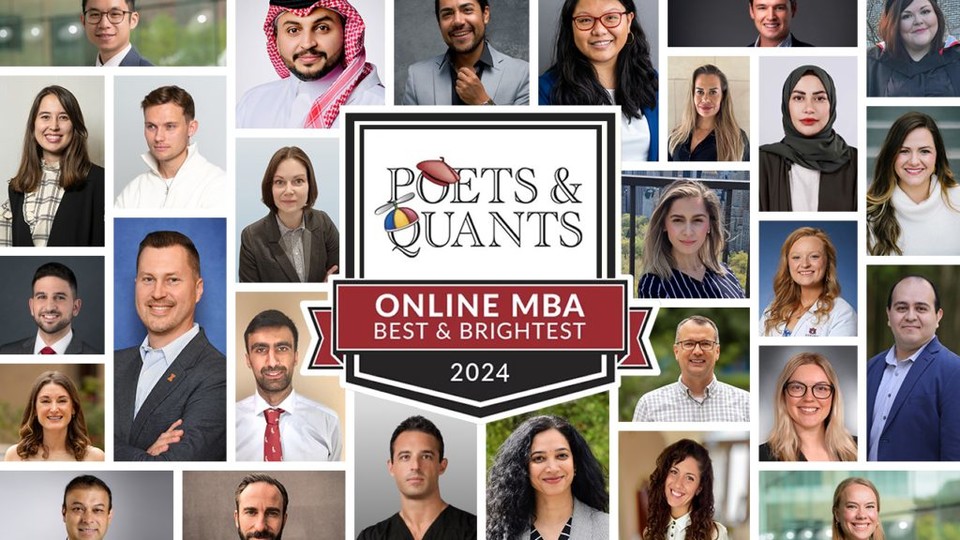
The Rice MAcc Class of 2026 Application is Now Open!
Applications are being accepted for the one-year Rice Master of Accounting (MAcc) cohort that will begin in August 2025 and finish in May 2026.
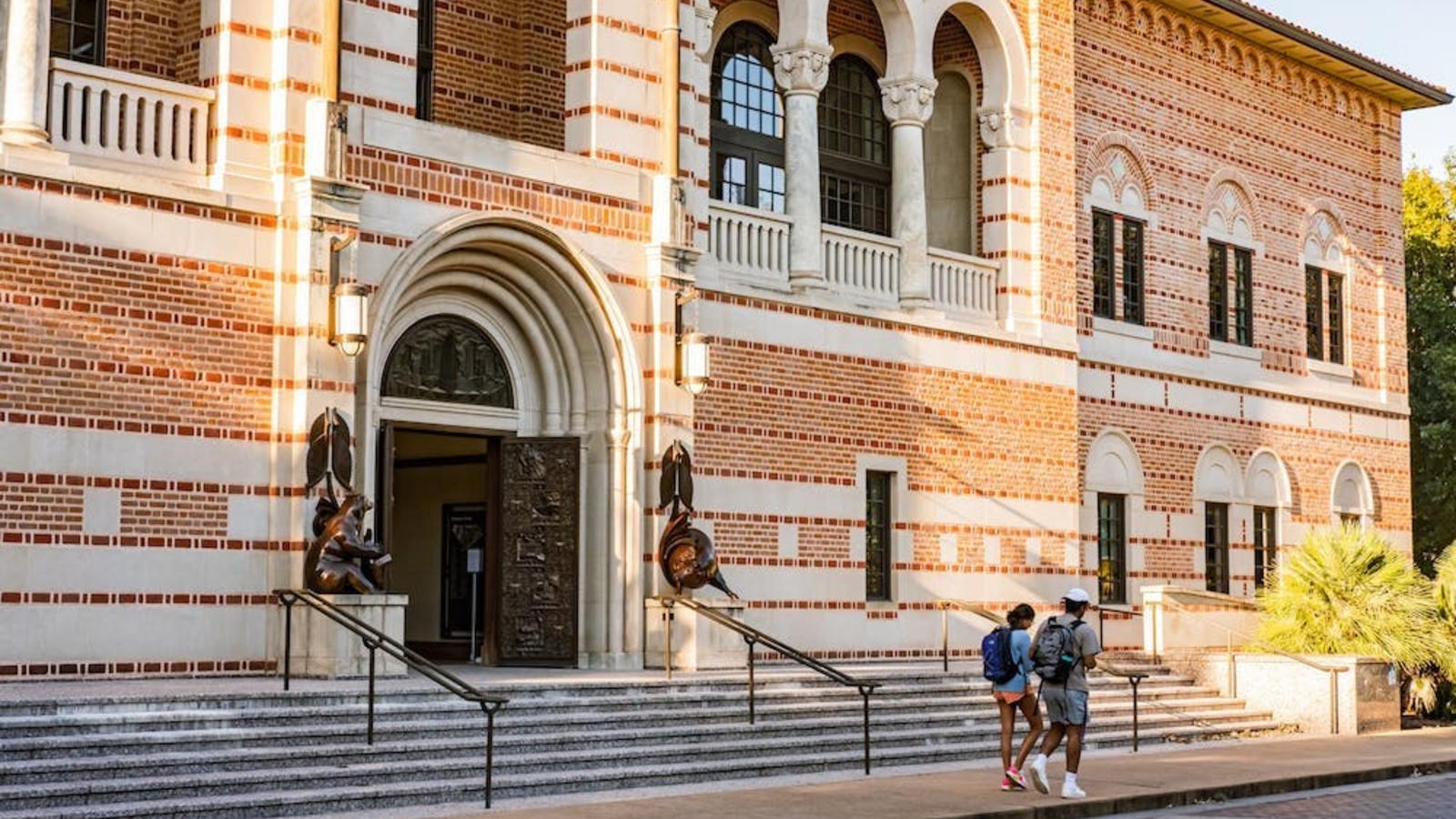
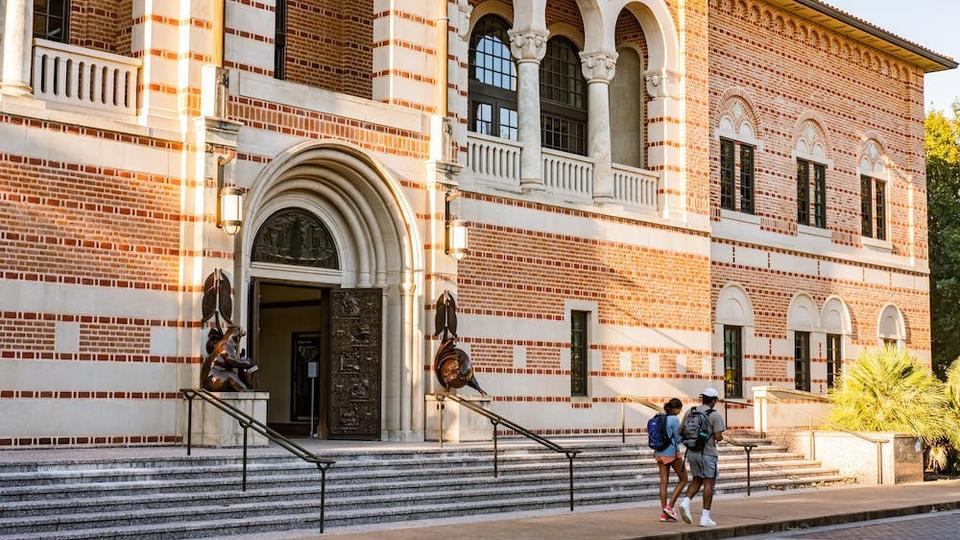
Applications are now being accepted for the one-year Rice Master of Accounting (MAcc) cohort that will begin in August 2025 and finish in May 2026.
We gathered some key information about submitting an application for the Rice MAcc program below.
What Do I Need to Apply?
Our Rice MAcc application is hosted entirely online, so you will submit all materials through our Rice Business application portal.
To complete your application, you submit the following materials:
- Statement of purpose essay
- Resume
- Unofficial academic transcripts
- The names and contact information of two academic or professional references
- Optional: Scholarship essay to be considered for any scholarship opportunities available
You can find more information on our required MAcc materials and admissions process on our MAcc Admissions page.
Standardized Test Score Policy
You aren’t required to provide a GMAT or GRE test score for your Rice MAcc application. However, you are still welcome to provide one if you believe it will help demonstrate your aptitude to the Rice MAcc Admissions Committee.
Rice MAcc Program Scholarships
Yes, merit-based scholarships are available and awarded on a competitive basis. Awards range from $5,000 to full tuition. To be considered for a scholarship, you will need to write an additional essay in your application. While the Rice MAcc application does not require a GMAT or GRE test score, submitting a strong test score may increase your chances for a merit-based scholarship.
Application Deadlines
We encourage you to begin your application early. There are three rounds of applications for the Rice MAcc cohort that will begin in August 2025. Once you've provided all of your application materials and submitted your application, you can expect to receive your decision within 6 weeks.
| Decision Round | Application Deadline |
|---|---|
| Round 1 | Friday, October 11, 2024 |
| Round 2 | Friday, January 10, 2025 |
| Round 3 | Friday, April 11, 2025 |
You May Also Like
From Nepal to Nanotech feat. Suman Khatiwada ’13
Season 4, Episode 18
Suman shares the challenges and rewards of scaling a startup, the importance of balancing personal and professional life, and his efforts to give back to his native Nepal through mentorship and support for local entrepreneurs.
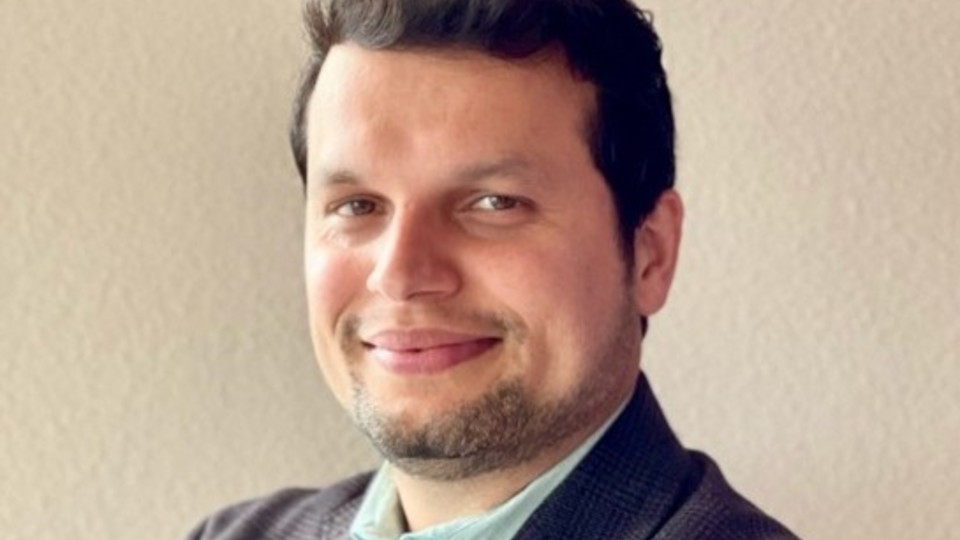
Owl Have You Know
Season 4, Episode 18
In this episode of Owl Have You Know, we explore the journey of Suman Khatiwada, from his roots in Nepal to becoming a trailblazing force in the chemical manufacturing industry. Suman is the co-founder, chief technology officer (CTO), and board director at Syzygy Plasmonics, focusing on using light-driven chemistry instead of combustion to power a cleaner, safer world. As CTO, he leads the technology team in developing, scaling up, and integrating the company’s core technologies: photocatalysts and fully electrified chemical reactors.
Suman earned his Ph.D. in materials science and nanoengineering from Rice University and his bachelor’s degree in physics from Morgan State University. Suman joins host Scott Gale ’19 to discuss his early interest in physics and how his passion evolved at Rice University. He highlights pivotal moments, like his transition from academia to entrepreneurship, forming his first company Big Delta Systems, and eventually starting Syzygy Plasmonics.
Suman shares the challenges and rewards of scaling a startup, the importance of balancing personal and professional life, and his efforts to give back to his native Nepal through mentorship and support for local entrepreneurs.
Subscribe to Owl Have You Know on Apple Podcasts, Spotify, Youtube or wherever you find your favorite podcasts.
Episode Transcript
-
0:00] Scott: Welcome to Owl Have You Know, a podcast from Rice Business. This episode is part of our Flight Path series, where guests share their career journeys and stories of the Rice connections that got them where they are.
Suman Khatiwada is the co-founder, chief technology officer, and board director at Syzygy Plasmonics. In his role as CTO, he leads the technology team in developing, scaling up, and integrating the company's core technologies, namely photocatalysts and fully electrified chemical reactors. He has built Syzygy's patent portfolio with more than a dozen patent families and several dozen trade secrets. As a co-founder and an integral part of the management team, Dr. Khatiwada has helped Syzygy raise three rounds of venture capital funding, win three government grants, and build a team of 100 employees and counting.
Dr. Khatiwada earned his PhD in material science and nanoengineering from Rice University and his bachelor's degree in physics from Morgan State University. In 2020, he was selected as one of the nation's brightest early-career engineers by the National Academies of Engineering's U.S. Frontiers of Engineering Program. Suman, welcome to the Owl Have You Know podcast. Excited to have you here. Thank you for joining us, my friend.
[01:17] Suman: Really excited to be here and have a conversation with you, Scott.
[01:20] Scott: So, I want you to just, kind of, share a little bit about your background. What, kind of, got you initially interested in physics, material science? And how has, kind of, that passion evolved for you over the years?
[01:33] Suman: Well, when I was a young person growing up in Nepal, I was pretty good in school. And being good in school, at that time, at least you were, kind of, pushed towards physics and maths and sciences in general because everybody wants you to be a doctor because that is a really good way of getting your family to well-being and a good reputation in the society and whatnot. So, that was, kind of, the start of the things.
I went to a high school that is, you would say, an equivalent of a math and science high school here in the U.S. in certain areas. So, it was very heavy on that side, but I had some really good teachers in that high school who made me enjoy science quite a bit. I loved the introductory physics course in high school. We were looking at a bicycle and looking at how, you know, physics-y the bicycle is all around and everything and all that.
So, I was like, yeah, this science makes me understand the world better. That was the starting of actually loving science and whatnot. And when I decided to not be a doctor and escape away and come to the U.S., I first started with thinking maybe I would do biology or, you know, in medicine or something anyway, but physics, the love of physics, took over.
So, I got a degree in physics. And as I was finishing my degree in physics in Baltimore, Maryland, the last couple of years, nanotechnology started becoming a thing. And Rice, being the birthplace of nanotechnology, was one of my target schools because I was like, "All right. If I'm going to go do graduate schoolwork, I might as well come and do it at one of the best places in the world."
[03:17] Scott: Can you share a little bit about arriving at Rice for the first time? I mean, you've obviously had some expectations and given where you wanted to go, like, take us back to that moment in that experience.
[03:28] Suman: So, first time I visited Rice was a campus visit. So, I had gotten accepted into the program. And this is February of 2007. I started my Ph.D. program August of 2008. So, campus visit, important thing. You're about to come into five to six years of your graduate life. So, I come here in February. And I came from Maryland. And it was nice and bright and sunny and pretty warm. And I was like, this is mid-February. And this is so nice.
And the campus is nice. There are trees. The buildings look good. The people are nice. I had more campus visits elsewhere in the middle and north of the country scheduled. I canceled all of that immediately after visiting Rice. I was like, "It's in Houston. I want to be in a metropolitan city. And the campus is good. The weather is amazing. So, I'll pick Rice."
I had a bias towards Rice anyway to begin with. And in terms of actual arrival, arrived, I think, one week before Hurricane Ike. So, I got a grand old welcome to Houston and Texas. I'd never been through a hurricane before that. And I hadn't bought my car yet. It was a rough four days or so out of my apartment, not knowing what I've gotten myself into.
[04:46] Scott: In your time at Rice, you were there for a number of years pursuing your Ph.D., I'm interested in this transition then to, kind of, this entrepreneurial mindset because you created Big Delta Systems. When did, kind of, entrepreneurship as a thread start to show up? And how did you start to, kind of, integrate those things, kind of, this deep science with entrepreneurship?
[05:07] Suman: Yeah. And there's actually, there's actually a story to that. A lot of that has to do with a few people and institutions at Rice. I was a graduate student, second year or so. So, the first person was my friend, Luke Boyer, who was in the same Ph.D. program as I was. And he's like, "Let's see what they are teaching elsewhere in other schools outside of material science and all that." And he said, "Oh, let's check out the MBA classes, what's going on."
And we started looking into it. And there were a few classes he and I were both interested in. And went and came and spoke to our advisor, Dr. Enrique Barrera, and he allowed us to take a few MBA classes. The course was called Technology Entrepreneurship at that time, being taught by Tom Kraft. And Tom became a mentor, and he is one to this day.
And this is now fall of 2011 we're talking about, just going through that class, being in a group of PhD and MBA students, and learning what a company formation means. As you know, in the class, they give you a patent, and you build a company around it and all that. All that was fascinating to me. We are taking this core patented science-y document and creating a company out of that. That was fascinating to me.
With that, I started getting involved with Rice Alliance, started volunteering for Rice Business Plan Competition. And this is, again, 2011 is the beginning of that, got selected and went on the Ignite Entrepreneurship trip with RCEL and Rice Alliance. And that year, we went to Boston, those three days of immersive experience, all that. So, all this culminated into me looking inward. And, like, I'm not necessarily the best scientist here, far from it.
And I like people. I like talking about science. I like talking about technology. I like engaging with people. Maybe this is something I need to look at as the thing I want to do in life, like, looking at hard science and starting a company out of that. So, started getting engaged with two of my other friends, Charudatta Galande and Neelam Singh, in the same department with Professor Ajayan.
We started working on a battery idea and filed a couple of patents and actually started that Big Delta Systems company. So, a lot of people and resources and the things that Rice University provided and me seeking for something different led to, like, you know, me wanting to start companies. And here we are today.
[07:44] Scott: Seems like a pretty, kind of, pivotal moment or series of moments as you're, kind of, discovering, like, "Hey, this is a way for me to deploy my skill set and my interests."
[07:54] Suman: Yeah. If there was no Rice Alliance, I don't think I would have been an entrepreneur. If there was no Tom Kraft in that journey, I don't think I would have been an entrepreneur. If my advisor had not allowed me to take those classes, Dr. Barrera, I would not have been an entrepreneur. And even my friend, Luke Boyer, without him nudging me along with himself, like, I don't think I would have... you know.
So, I think your surroundings and environment that you are in play a large role. You might want to do something, but being nudged, or having access to certain things, I think, play a big part. And Rice, obviously, does a really good job. And now, with the Ion and Liu Idea Lab, it's, I think, even better for someone within the Rice ecosystem wanting to be an entrepreneur and start companies.
[08:44] Scott: Kind of, lower the friction of that discovery process. Are there, sort of, things in the, sort of, experiences or learnings that you still draw back on from those early Big Delta Systems days that you, kind of, wake up in your day job today as you're scaling a bigger and bigger company, like, that you draw back on?
[09:04] Suman: Yeah. And mostly, like, reflecting on, like, how naive I was. And we were, like, you know, trying to be first-time entrepreneurs, founders, with no money, or immigration status that allows you to work freely, for example. We're on student visas, right? So, a lot of things that I find myself drawing on are the same things that are, like, key to who I think I am as a person.
Always being good with people, being eager about other people, learning from their experiences, you know, treating everyone equally. You never know who is going to, you know, help you in what way, whenever in life. So, being people-centric in my outlook of life, I learned from that early engagement during my graduate school, basically, I think, still holds to the day as we've now built a 120-person company.
[09:56] Scott: Love that. I want to ask you a couple of questions about Syzygy Plasmonics. And some of these questions, you've probably heard a lot, but I think for our audience, you know, they're learning for the first time. And so, wanted you to, sort of, share a little bit about the founding story of Syzygy. Like, what was, kind of, some of that initial spark? What led to it? What is Syzygy, kind of, in simple terms? Like, what does the company do? And why the name? If you could just take us through a little bit.
[10:27] Suman: I will touch on what your latter half of the question, and then I'll go into the founding story. Syzygy Plasmonics is the company's name. The word syzygy, as an English word, means alignment of three cosmic bodies in space. Whenever you have an eclipse, that is a syzygy moment. So, we recently had a solar eclipse. We celebrated it by going to Driftwood, Texas, and enjoying the eclipse as a company all together, and all that.
So, the name came about because we had a tagline: Energy, Technology, Sustainability. And we wanted a real name for our company, and had just come back from experiencing total solar eclipse in Nashville in 2017. And so, like, all the astronomy-related things were, like, you know, fresh in my mind. And we were sat at Trevor's old house in his kitchen, drinking a beer.
[11:20] Scott: This is Trevor Best.
[11:21] Suman: Yeah, Trevor Best, my co-founder and CEO. Yeah. I googled, “English word with three Ys,” to tie in the energy, technology, and sustainability. And the syzygy word came up. And I'm like, "What is this word?" Myself. Like, the same look that hundreds of people have now given me since then. Went to dictionary.com and put on that phonetics thing. And it said Syzygy. And we noodled on it. And we talked about what it would be.
And then we came back to it after an hour and decided to name it. And plasmonics is the foundational science that the technology is based out of. So, we named it Syzygy Plasmonics. And in many ways, now, it's become synonymous with our... Like, we could not change our name anymore. Once people know the word, they know who we are and remember us and all that.
We did get quite a bit of flak from early-day advisors, mentors, on the marketability aspect of the name, but we always told ourselves it's going to be a B2B, kind of, company, you know. Every person does not need to memorize its name. So, we should be okay. But energy, technology, sustainability is core to who we are as a company and the reason why we started this company in the first place.
It gives us a cultural foundation to build the overall culture of the company. So, we stuck to it. The way we started this company has its origins at Baker Hughes. So, I was working at Baker Hughes at that time, and so was Trevor Best, my co-founder. And he and I started looking at many different technologies to assess and provide potential business opportunities for Baker Hughes to start having the company or nudge the company towards doing things on decarbonization, sustainability, that aspect.
We were on that path for about a year and a half while we were still at Baker Hughes. It all started with having Thursday afternoon get-togethers. So, we would accumulate like-minded fairly young folks to meet at Brick House Tavern on 290. And there were a few rules. You talk about energy and what we're reading, new things on energy. And nobody's allowed to complain about their jobs. And we'll just have this core group of people come in.
And from that, Trevor and I became close because we had our same, kind of, goals in life, like, try to do something bigger than ourselves, make this world a better place, you know, find something to do together and all that. So, him and I started working. Towards the end, we presented one business idea to the C-suite, but it was during rough times for Baker Hughes. It was in the process of being overtaken, first, Halliburton, and then GE Oil Gas.
And it was oil and gas downturn, so it was not the right time. So, we decided that we're going to look for technologies outside. And if we find something, we'll quit our jobs and start our own company. Him and I created a framework. We call it TMI, Technology Market Impact. And we had our own sets of questions. So, you know, we'd go and scout, I would go and scout, news and media coming out of top research universities in the U.S., Rice included.
I would do my own analysis. And if it looked good, I would bring it to Trevor. We would work every Saturday. So, I would go and wake him up at Saturday morning at 8:00 AM in his house. And we would walk to Empire Cafe or Agora. He used to live around there. And by the time we had a little bit of breakfast and some coffee, he would wake up. And then we would work through the day until about 2:30, 3:00, and give each other homework.
We would work on our own every evening. We still have our day jobs, right? On, like, you know, whatever we see, whatever we're seeing and all that. So, some key important things happened. We learned how to work with each other. We started building trust and credibility among each other. Also, we were, you know, in it, right? Every Saturday, we were working. And every evening, we're working on our own and all that.
So, there was no doubt out of the bat that him or I would not work out as each other's co-founders and all that. And to this day, that kind of relationship, knowing how to work with each other, each other's strengths and weaknesses, and knowing that we are both in it, I think, is one of the key reasons for how fast we've been able to bring Syzygy up while developing a technology from scratch.
[15:36] Scott: In a bunch of ways, like, you and Trevor didn't invent the technology. You had just built a framework. It's almost like a joint venture, in some ways, between the business entity and partnership that you and Trevor had created. And the technology that as it came together, that's a path for entrepreneurship.
[15:55] Suman: One thing there was, though, was we knew the catalyst was good, but we did not have a reactor. So, we knew we had to invent the reactor technology. So, the big leap of faith on, like, in ourselves, like, between him and I and the team that we put together, we'd be able to invent this reactor that would be able to take advantage of all the amazing characteristics of this catalyst. So, that was the big unknown risk that we took on technology.
[16:25] Scott: Can you talk a little bit about just, sort of, like, what the catalyst and the reactor, what do they do? Where does it fit in the economy? Like, what's the ins and outs?
[16:33] Suman: I realized I didn't answer one part of your question on what does Syzygy do. So, our company is a developer of a fully electric chemical reactor. So, if you think colloquially what Tesla has done for transportation, our technology does the same thing for factories and plants that make chemicals, fuels, and fertilizers. So, you know, refineries, methanol plants, other chemical plants, they all run pretty much under the same principle.
They have a chemical reactor that is power, that gets energy from burning of coal and/or natural gas. So, our technology replaces the combustion of coal and natural gas with input electricity. So, the big gains here is, yeah, it is an electrification play. And that has a lot of operational benefits to how a plant is run and everything. But also, if the carbon intensity of the input electricity is low, then your entire process is low carbon.
So, if you have a chemical process where you have sustainable or from renewable resources feedstock, and you use our reactor with low-carbon intensity electricity, then the chemical fuel or fertilizer that you make on the back end has very low or negative carbon intensity.
So, our aim with the company is to provide this technology and deploy it for many different market verticals, from production of hydrogen to production of sustainable aviation fuel, e-diesel, making butadiene for rubbers, making ethylene, all of those verticals, and start decarbonizing the way those chemicals, fuels and fertilizers work. And it goes with the ethos that we cannot change the way we live anymore in this world, right?
Our way of life is now our way of life. So, our technology, we believe, has a very sustainable pathway to still enjoy modern life that has been built with conventional petroleum products, these chemical fuels and fertilizers, but in a more sustainable way that we don't have to lose our modern way of life. And that's, overall, the goal. And in doing so, we bring to this world a tool that is capable of fighting climate change by reducing overall carbon footprint of these chemical manufacturers.
[18:57] Scott: And it's incredibly hard to decarbonize part of the economy, right? Chemical-manufacturing-heavy industry, these are things that have unique power requirements, consistency, reliability. And, you know, you can't break the laws of physics and chemistry on these pathways. Like, how do you, how do you make them less energy intensive and et cetera. So, super cool.
As your role as it's, like, evolved, what are, kind of, your day-to-day responsibilities now as CTO? And how do you, kind of, balance the technical development path with the strategy and leadership component?
[19:31] Suman: Yeah. In many ways, it's not changed as much because I've always been a member of the board of directors. I've always been involved in... Trevor and I make most of the big decisions together. The frequency of touch points is different now as we understand each other more.
It's not the same as before, but I've always had the responsibility to contribute through decision-making strategy and all that in addition to leading the technology development. What has changed now, though, especially in the last year, is we have matured our technology on the three process pathways and are ready to go to market.
And this change from a R&D-only organization to a product organization, so the elevation of my own professionalism has become a little bit different, but I also have more help. So, I have an incredible team, of course, in my technology team. I have three vice presidents, one in research, one in product development, one in engineering. So, all of them are my pillars that help me not get stuck in the weeds so I can do more things.
Trevor and I are still pretty good, and probably the two best salespeople in our company, right? So, as we are educating the world about the merits of our technology and the winning demo plan projects and all that, my engagement is essential in a lot of those, right? So, in a high-level sense, it's not changed, but we have become a different company every six months since our formation.
And starting to run the company since February, 2018, every six months, we become a different company. So, yeah. So, we have found ourselves challenging ourselves and also each other, and I say that this is for Trevor and I mainly, to become the executive that the company needs you to be right now.
And sometimes, I have to challenge him. Sometimes, he has to challenge me. But one of the reasons we've been good at scaling and maintaining, like, extremely high retention and all that is we don't attack each other. We attack our ideas. And at the end of it, we are always one voice and working towards one goal and are able to bring everyone in the company together towards it as well.
[21:49] Scott: It's clear that you, guys, are doing that well in terms of the funding that you've attracted, the talent that you've attracted. Like, all of those things, I think, is really exciting. I wanted to go off on, like, a little tangent, if I could, to get your thoughts. Like, commercializing university technology is crazy hard, universities and tech transfer offices and all these things.
So, I wanted to maybe just get your thoughts on how did this one work when so many others, like, struggle? Were there some things that you felt like were just serendipitous or that were just foundational to the TMI model that you and Trevor built? Just, kind of, curious as a, kind of, an aside.
[22:26] Suman: Yeah. Before I start talking about, you know, Rice and our stuff and all that, I think I want to establish this, right? Startups and university administration, they usually live in two different universes. So, they don't speak the same language. The need for speed is not the same, right? It's different time scales and all that. And that is true for any startup coming out of any university and all that. And most universities don't do this relationship well at all.
And this is me not just, you know, hypothesizing, but I've spoken to a lot of fellow founders in similar, kind of, companies over the last six, seven years and all that. So, this is a pain point for everyone. For us, a lot of this was because Trevor and I were so methodical on our approach, even though we were naive and such, but we're still methodical. We knew what we needed to do. I had experience writing a couple of patents within Rice University.
While doing that, got engaged with Rice OTT. I understood how they worked. And there was this gentleman named Ernie Davis. He was very helpful in educating a little bit more to us and all that. So, I understood the patenting process and what it meant. At Baker Hughes, I had written quite a few patents as well on the project that I was working on inside there.
So, like, understanding patenting and then understanding the university setting, I was there for five and a half years, right, was key for us to know where to push and who to go talk to and why and when to listen and when to tell, you know. Those kinds of things were there, luckily, for us.
And we were methodical on our approach. The other thing that was foundational to the success was the buy-in from the two professors, Naomi Halas and Peter Nordlander. Once they were brought in to us as a team, Trevor and I, and this project for them, they threw their weight behind us. And they're like, "Okay. This is how we're going to do it. I think this technology needs to go out to the world. And you, guys, are the ones to go make this happen."
[24:32] Scott: What's clear is it doesn't happen on its own, you know. The incentives have to be there, the motivation and the mentality around it. And so, creating the right fertile ground and circumstances for those things to, kind of, happen, it does, it takes time. There's, kind of, this weight of incumbency on this. The cultural approach, that takes time to overcome.
[24:52] Suman: That is especially true. And you know this, Scott, from your own, you know, day job, is for hard science-based technologies that need to be developed and spun out and become companies, it is even more important to have that support structure in place. And without that, it's not going to happen. Like, you know, one person might want to make it happen, and they might be able to, but it will not be a norm. It will be just a one-off without a structure being put in place by the university.
[25:23] Scott: That's not a nominal, sort of, part of the journey. There's some really big steps to be taken. And love that you, guys, are catalyzing that, pun intended, for the community. I think that that's really quite exciting. Entrepreneurship's crazy hard. You've been at this for a bunch of years.
Like, do you have any, like, hobbies or interests or do you do anything, sort of, on the weekend now that you and Trevor aren't burning your weekends thinking about... I mean, maybe that's all you're doing, but anything you do...
[25:51] Suman: Early on, we decided, within our first year of founding the company, that he and I were not going to hang out outside of the work hours. No, I mean, it's not like, you know, we'll never hang out, kind of, thing, but just to hang out because him and I could not switch off. So, to save, to save each other from ourselves, we decided not to.
And then, like, obviously, that's not always true because we actually like each other and are friends, you know, and all that, but we made an intentional decision that, like, this separation and not talking about work or not feeling the urge to talk about work 24/7 is important because of the fact that it is so hard, and all that. But I love people, so you can't take me away from people.
So, my hobbies goes, like, a lot of that is just, you know, catching up with my friends, grabbing a drink, grabbing dinner, going on a walk with them, talk about stuff, be on the phone with them for 15 minutes, talking, catching up. That's a big part of what I like to do. I am less keen on business dinners anymore, and much more keen on family or friends dinners and stuff like that. I also like to cook as much as possible.
So, probably two, three times a week, I cook, on average, but, you know, something simple, something that does not take more than 30, 45 minutes. I like to eat dinner at home with my wife. We love hanging out in the evening, most of the time talking about her work because I don't want to just talk about mine during that happening, but just talking about life, catching up on everything, and all that. So, two, three times a week, I cook.
That is, like, actually very calming to me. I used to, every weekend, until about four years ago, watch soccer, English Premier League, during the season, every Saturday and Sunday mornings. I haven't watched a full game live in a couple of years now, but I do whenever I get time, I watch this, you know, YouTube highlights to keep in touch with my team's progress, Manchester United.
But in terms of just hobbies, like, these days, especially as this very hard journey of entrepreneurship has been happening as we're building the company, just being on my phone and reading the news or reading a simple book. The book I'm reading right now is called Climate Capitalism by Akshat Rathi. This recently came out and all that.
So, I like to read books like that to see what people are talking about, the world, the climate, and what are the things that we can do. I like that book specifically because he talks a lot about, you know, success stories on climate-based technologies around the world, and which is not like many others which are focused on doom and gloom. My wife makes fun of me, but I relax by just reading articles on my phone.
And she's like, "You're still stimulating your mind." And I'm like, but I feel, I feel relaxed because I have this innate need for learning about the world in general. She caught me the other day. I was reading about South Africa, I think, the economy there right now. And she's like, "Why are you reading about the South African economy?"
And I'm like, "It's fascinating what's going on in there." So, I was reading articles on it. And she's like, "But you were supposed to relax." And I'm like, "I am relaxed. Like, I feel, I feel good." And her and I like to go on walks whenever it's not too hot or has too many mosquitoes outside in Houston.
[29:15] Scott: Thank you for sharing that because I think the entrepreneurial community, right, like, it's not an easy thing to start, let alone run and scale a company, but small things, it's around that consistency. Like, if I were to put words in your mouth, like, just to have a little bit of a disconnect, focus on something else, whether it's brief, to, sort of, keep yourself focused.
[29:35] Suman: No, I mean, you hit the nail in the head. And even a bigger problem is actually glorification of entrepreneurs and founders and expectations that, yeah, you will do anything and everything in your capacity to make this happen, which is true. It should be that way.
You're using other people's money to try to do something and make something happen to create a business, but that should not mean that you are also expected not to sleep or have a family and all that, right? But a lot of entrepreneurs actually talk about how much they work, how busy they are, and all that as a matter of pride.
But what does that do, and I've seen in quite a few of the founders, is that means that you're telling yourself that you're not going to take care of yourself and your loved ones around you, and which is the recipe for bad health, bad cognitive state, all that, right, burnout, all of that. So, if you're burned out, you can't do well for the company. So, you need to balance it out. And Trevor and I have... it's been hard for us to learn that.
And we're doing better and better as we are, you know, growing up to be an entrepreneur, and all that, but that's a real thing, especially for founders. And most of the times, like, founders can only talk about this with other founders. That's their only safe space, if you will. But this is a real thing. And I always welcome my other founders in other companies to talk about this kind of stuff.
[31:02] Scott: Thank you for exploring that with me-
[31:04] Suman: Absolutely.
[31:04] Scott: ... because I do, I do think it's so important. It's a unique experience and challenge set that many people mistakenly think that they have, like, alignment to being a founder of a company. That founder title is quite unique.
And, you know, if you're in a big corporate job or whatever, you feel like you're busy, et cetera, but it's a different, kind of, pressure when you've taken other people's money and you've got other people's employment on your mind and all of those things. So, I have a huge respect for what it is you, guys, are doing.
[31:35] Suman: I don't know if there are harder jobs, especially if you care. If you're an entrepreneur, founder of a company, and you have dozens of people and you care, this job is very, very hard. And it's difficult to explain to people. It sounds almost like there's not many adjectives to use to define how difficult it is because you're always playing 4D chess across all dimensions of your company, your market you're playing in, all of that, at all times.
[32:07] Scott: Exactly. Well, as we, kind of, wrap up here, it's important for us to... I want to talk about the Rice Business Advanced Management Program, their collaboration with the Leadership Academy in Nepal. This is where you and I spent some time last year, kind of, had this conversation in real life.
So, I wanted to talk about of your position as, like, a successful Nepali entrepreneur, how has it allowed you to, kind of, give back to your home country, and, kind of, the impact that you're just thinking about and hoping for in that topic broadly as they come here to go through that experience, et cetera.
[32:40] Suman: I was born and raised in Nepal. Nepal being one of the poorest countries in the world, I have that sense of responsibility for everything I do in life, find ways to give back. And the unfortunate part is we just talked about how difficult and engaging this job is. I feel bad that I'm not able to give as much time or even thinking towards many different things that I would like to. But that doesn't mean that I don't do some stuff.
When the time is right, I will hopefully be able to do a lot more, but right now, I do a few things. There's this organization called The Great Nepali Diaspora (TGND). They run a startup studio in there with, you know, Nepali and other founders. And I've been a mentor for the first two years of their existence, and still mentoring two or three startups that have come out of the two cohorts.
In there, they have started a Houston chapter of that. So, that's one, continuous one, that goes throughout the year. And the other one you talked about here is the Leadership Academy of Nepal, partnership with Rice University, the School of Business. Michael Koenig has done an incredible job of putting this together at Rice. And I think they have been having the executive leaders from Nepal here for about three or four years now.
And every year, if I'm in town, I've made time to come and speak to them. And last year was you and I doing a fireside chat and taking questions from these executives from Nepal. Big thing is they're not coming here with an expectation of seeing a Nepali entrepreneur here doing this, kind of, venture-capital-backed side, but for them to see that different aspect.
What I have heard from them is the sense of pride, and then that translates into wanting to do more within their organization and being a leader that is a little different and all that. And for me, me spending a couple of hours with them here at Rice and that special event is me giving it back twice, right, in a, in a double way. One is to Rice, and one is to my fellow countrymen from back home.
And if I help a few of them get something out of it positive by my interaction there, it's a, it's a big win-win for me. Later in life, if I'm able to amass a lot of influence, people, and hopefully some money, and all that, I do plan to do something direct with a lot of things in Nepal. I have, you know, that cooking on the back of my mind at all times, but right now, it's all Syzygy.
[35:14] Scott: No, exactly. Well, Suman, appreciate everything that you're doing. I mean, what you guys are doing is an inspiration for the Houston story, for the Rice story, for Nepal, all these things that are going on. And so, it's just a privilege to be here with you today. Thanks, again, for coming on the show.
[35:30] Suman: Absolutely. Thank you, Scott. You're amazing.
[35:34] Scott: Thanks for listening. This has been Owl Have You Know, a production of Rice Business. You can find more information about our guests, hosts, and announcements on our website, business.rice.edu. Please subscribe and leave a rating wherever you find your favorite podcasts. We'd love to hear what you think. The hosts of Owl Have You Know are myself, Scott Gale, and Maya Pomroy.
